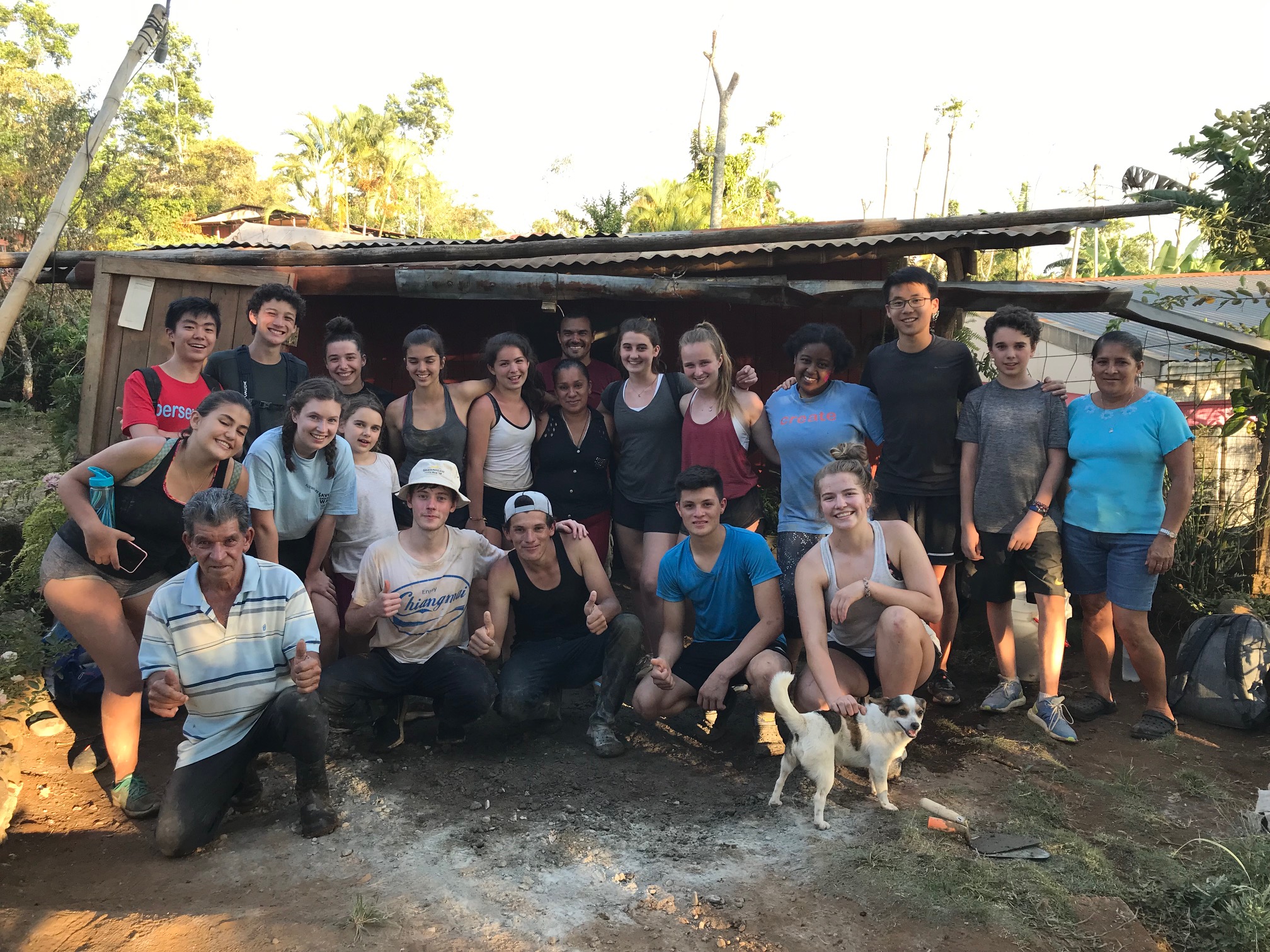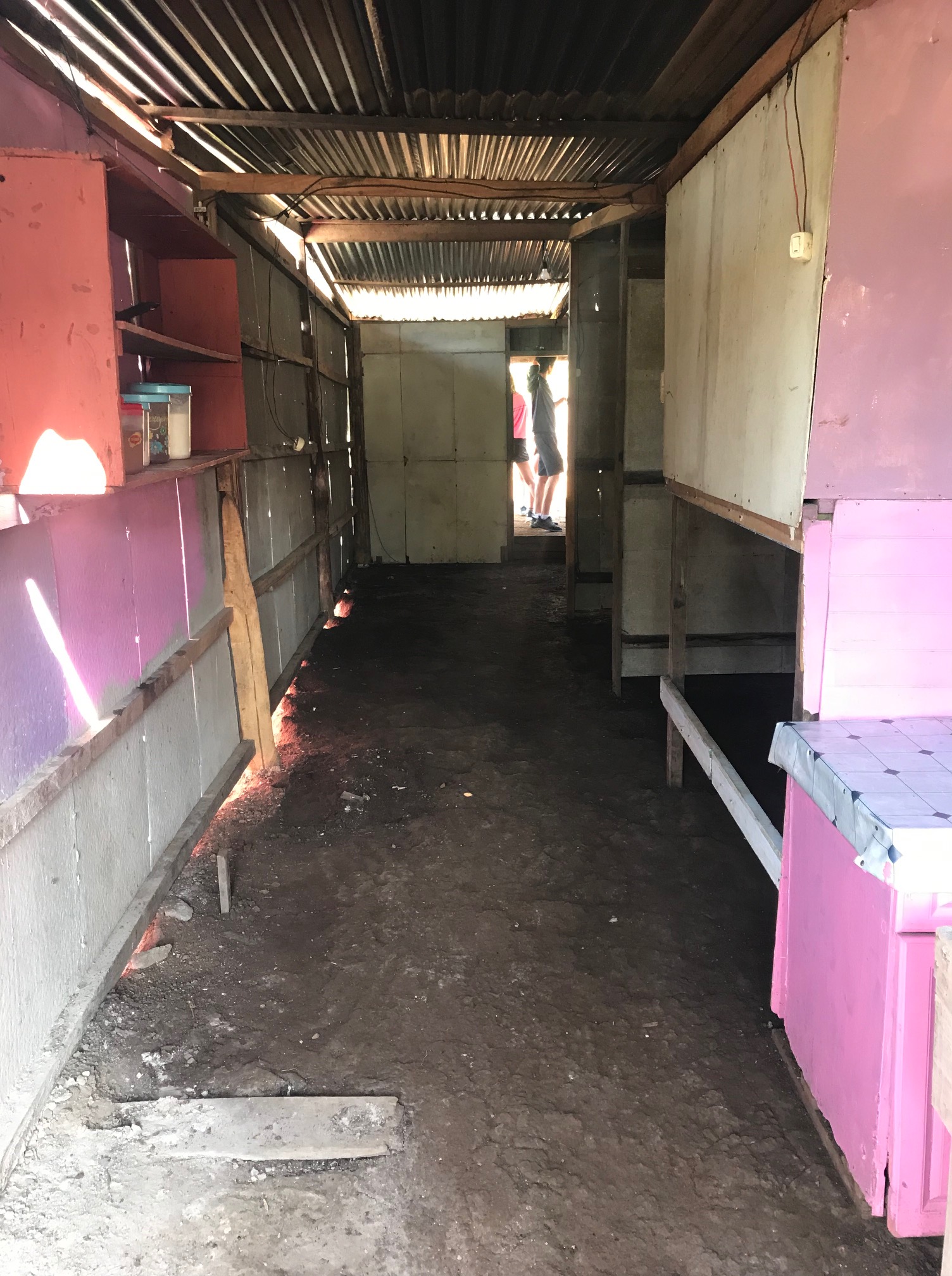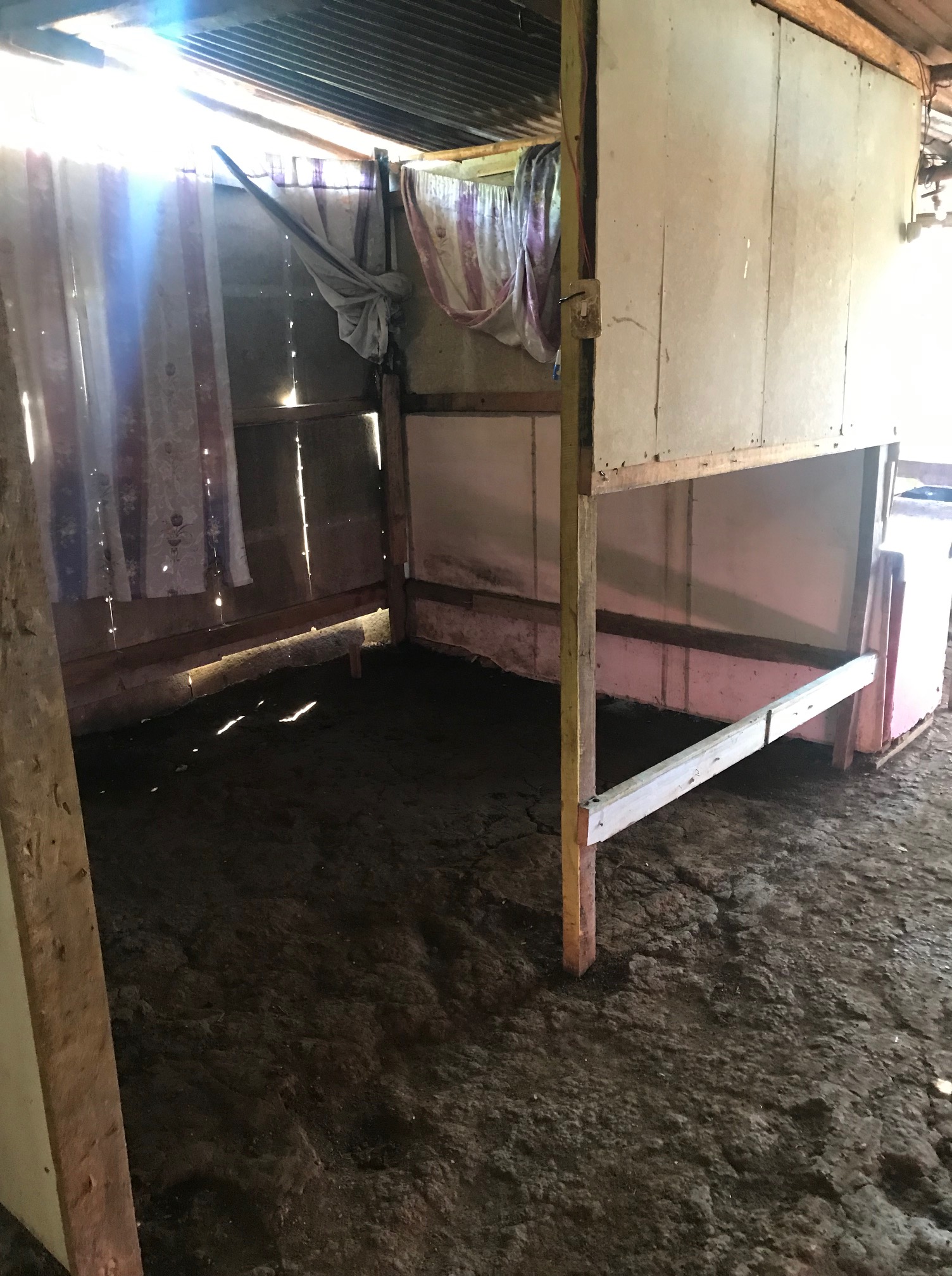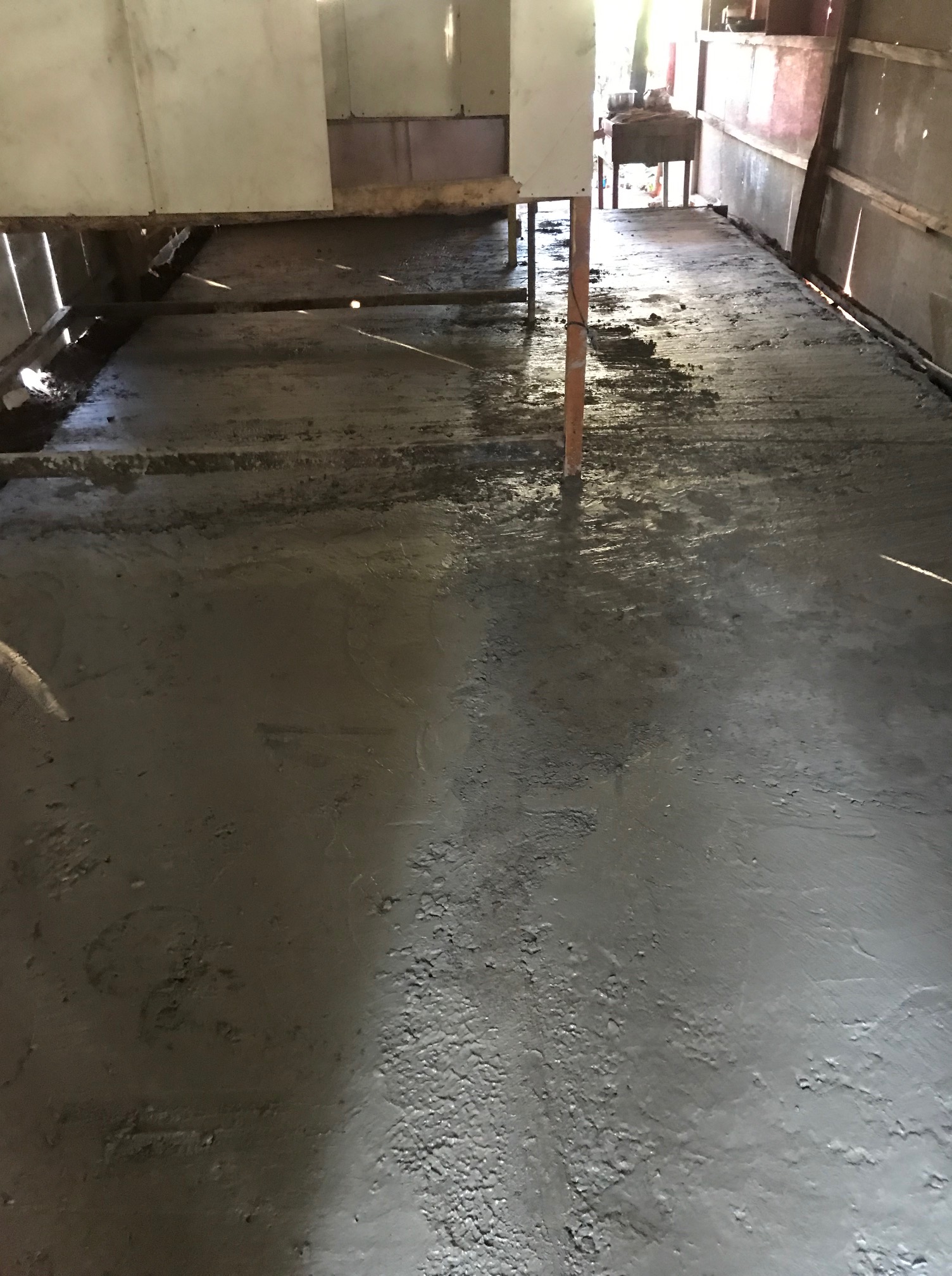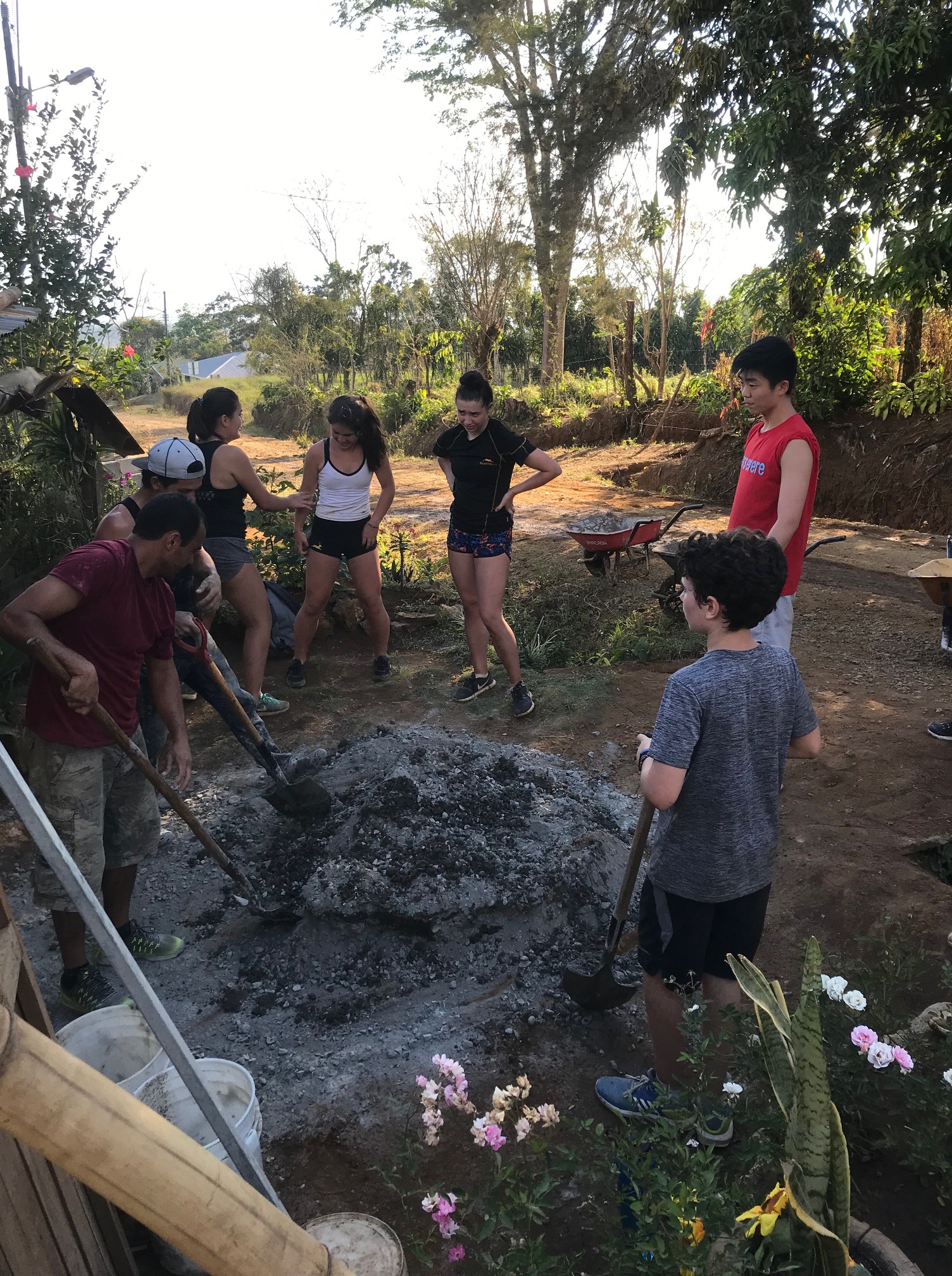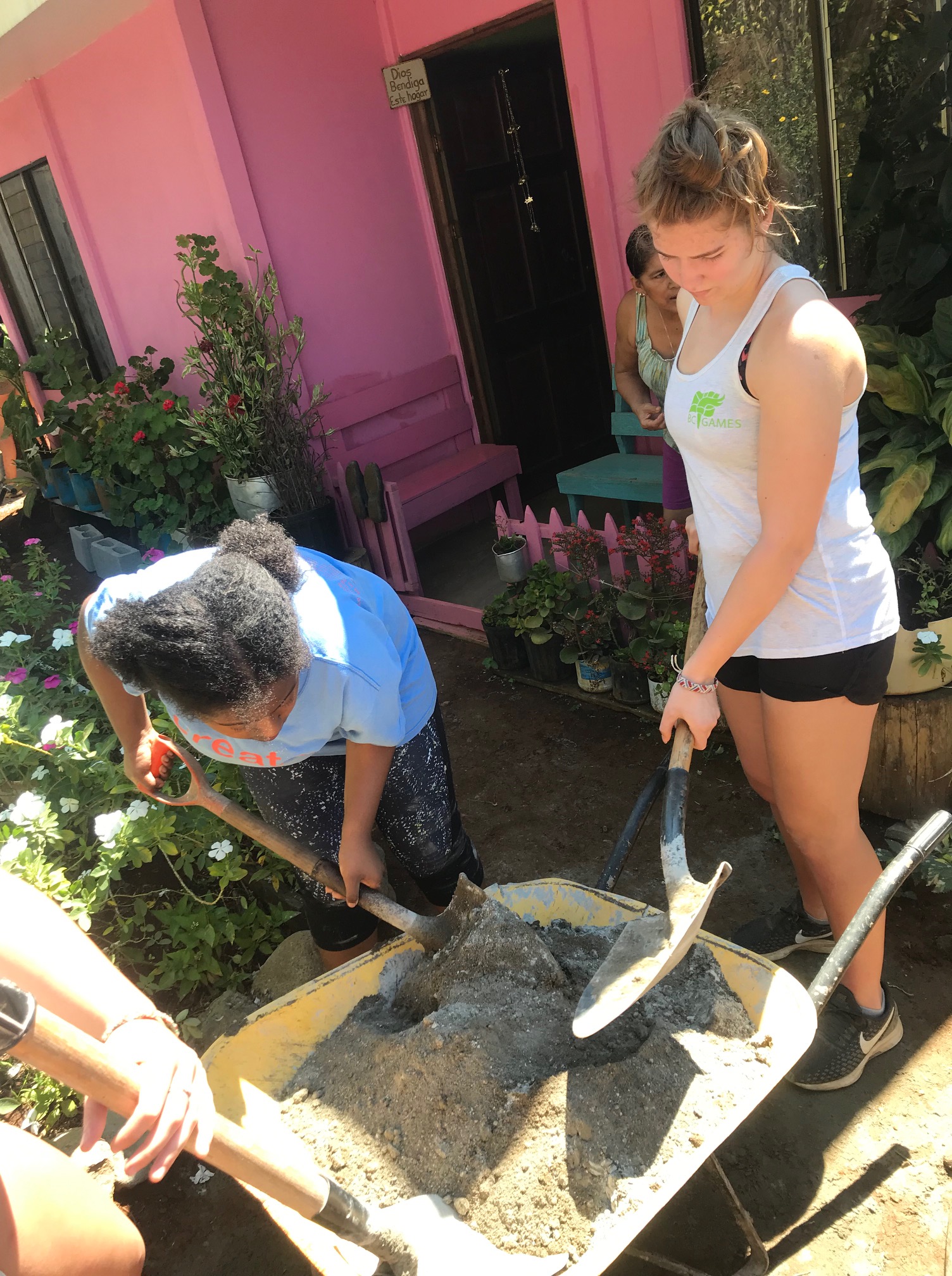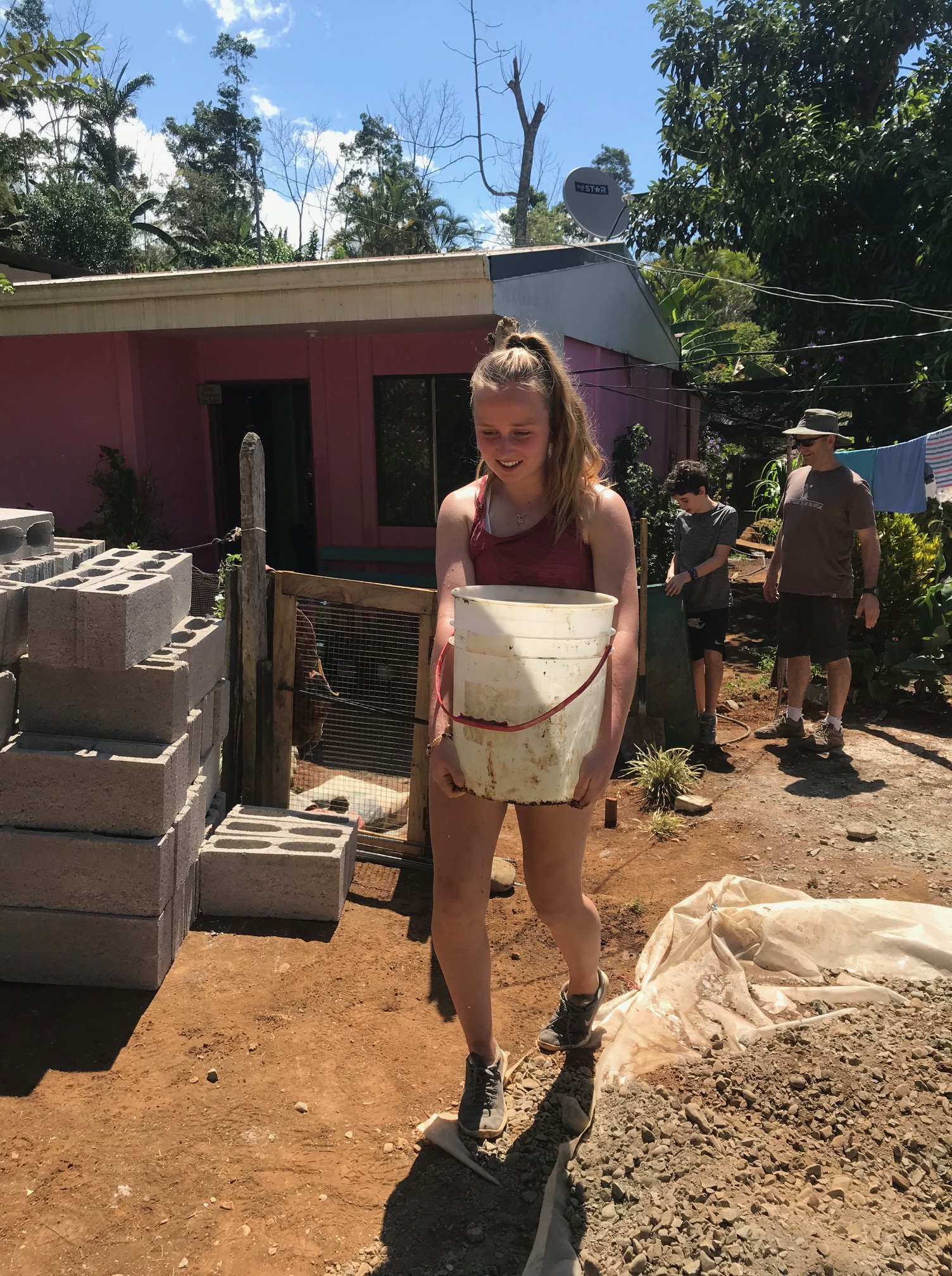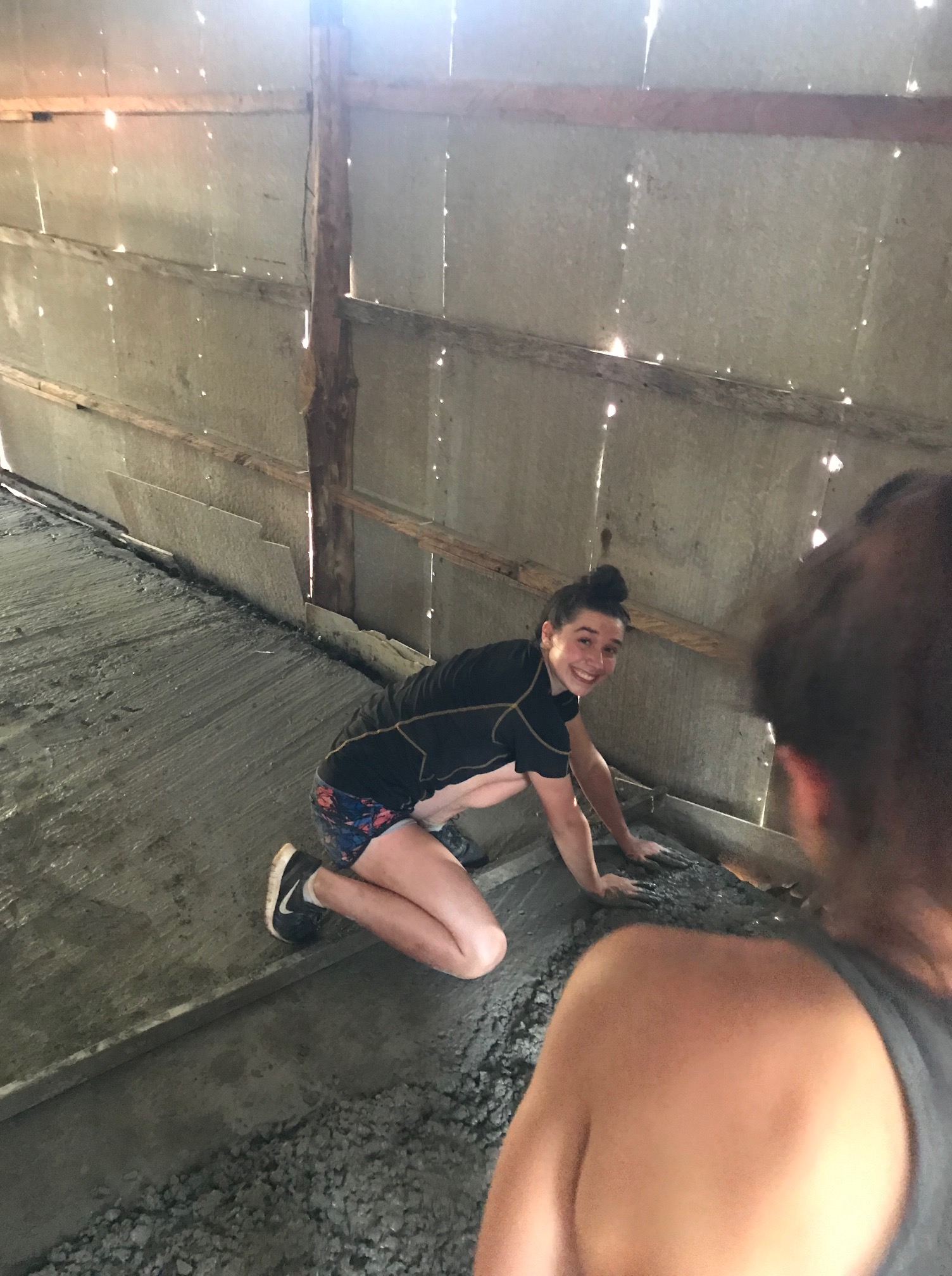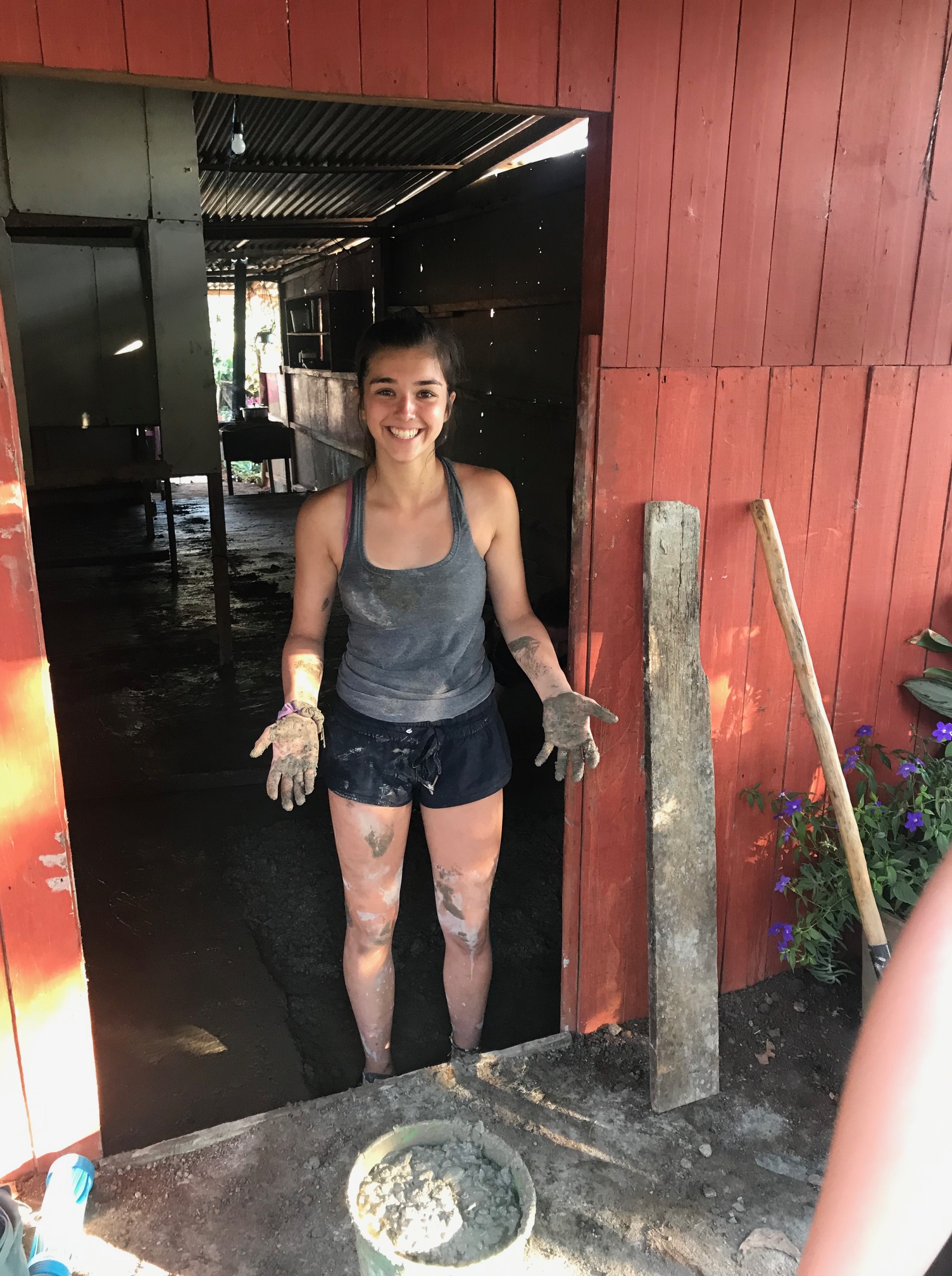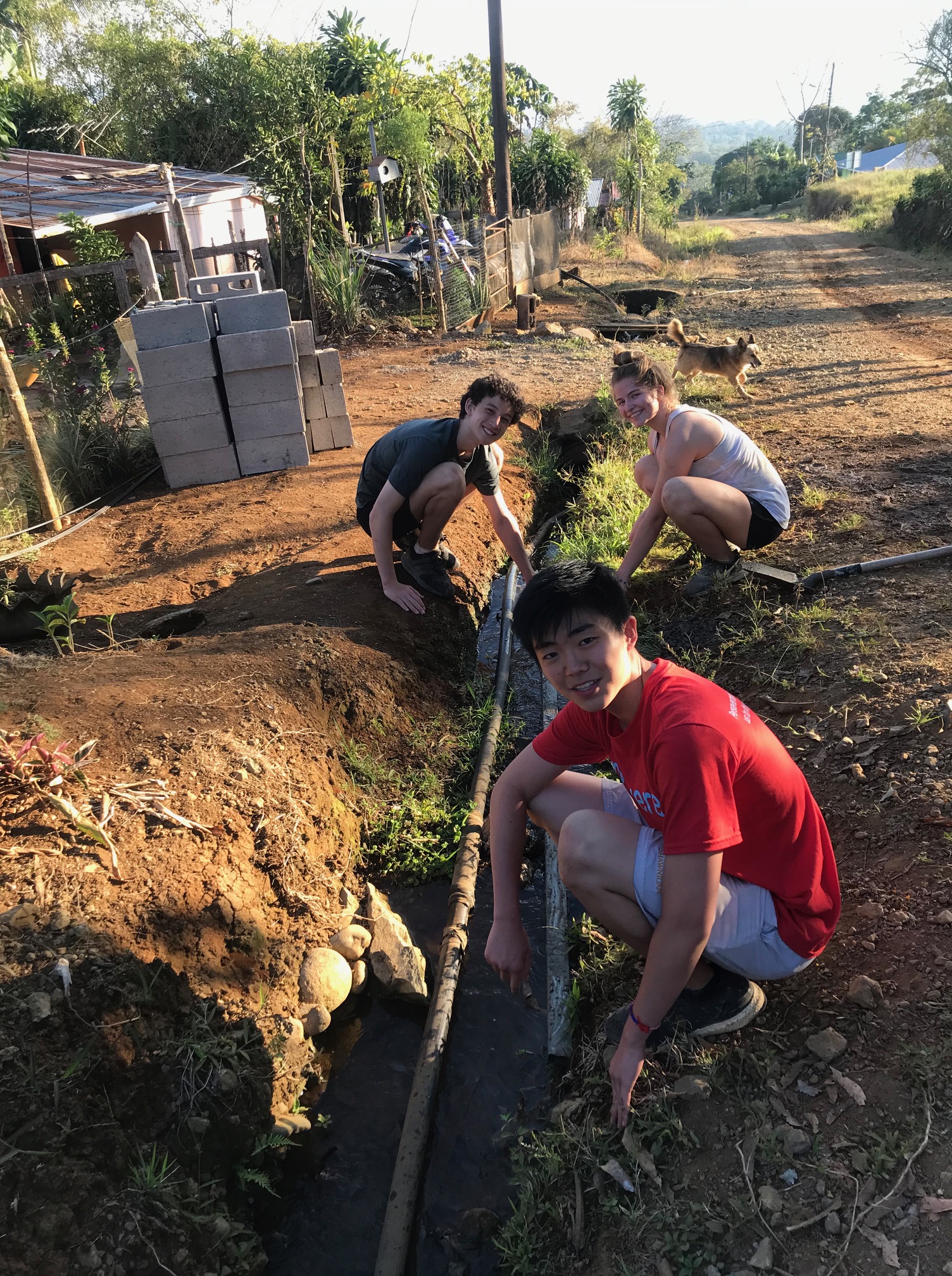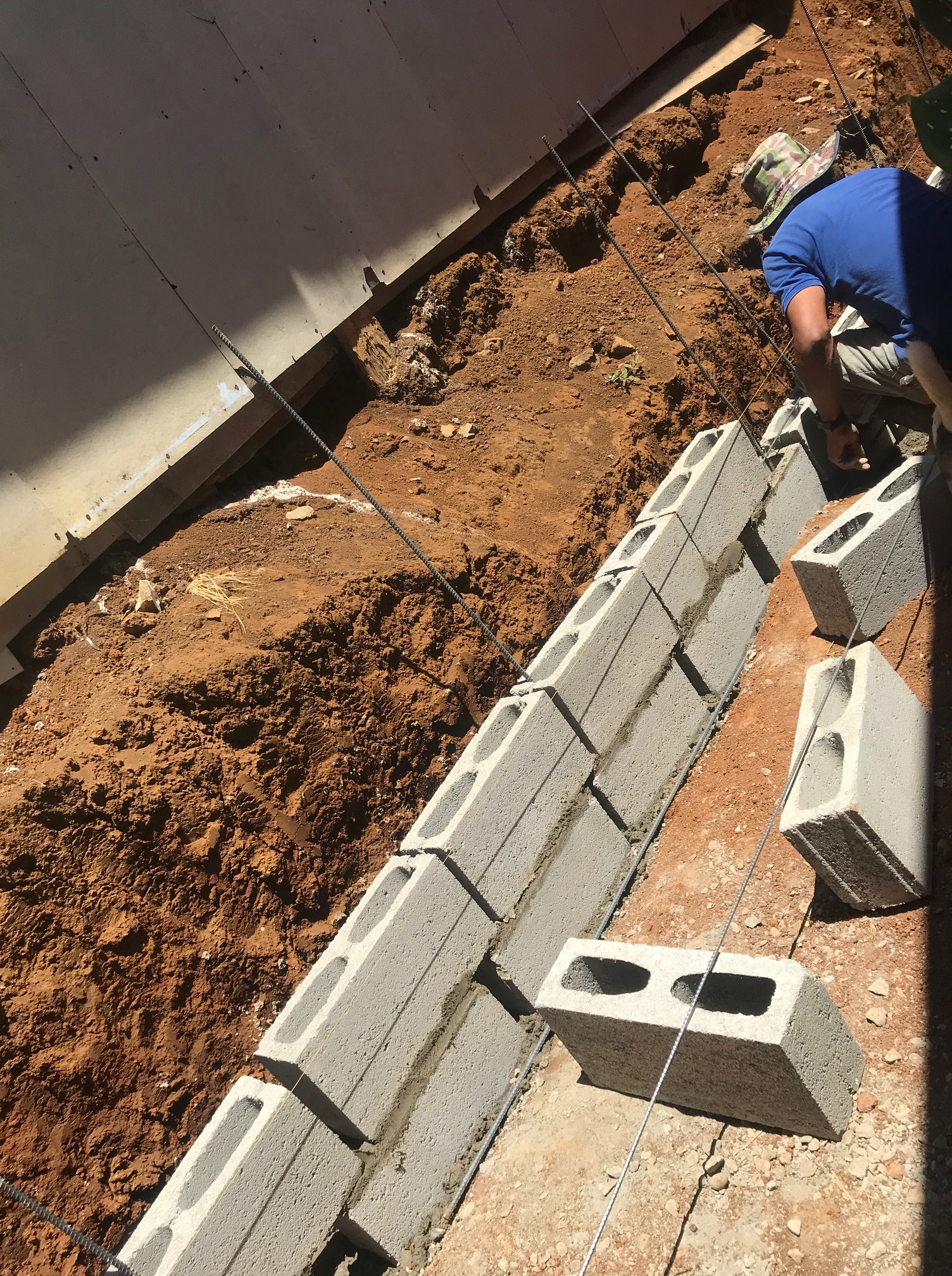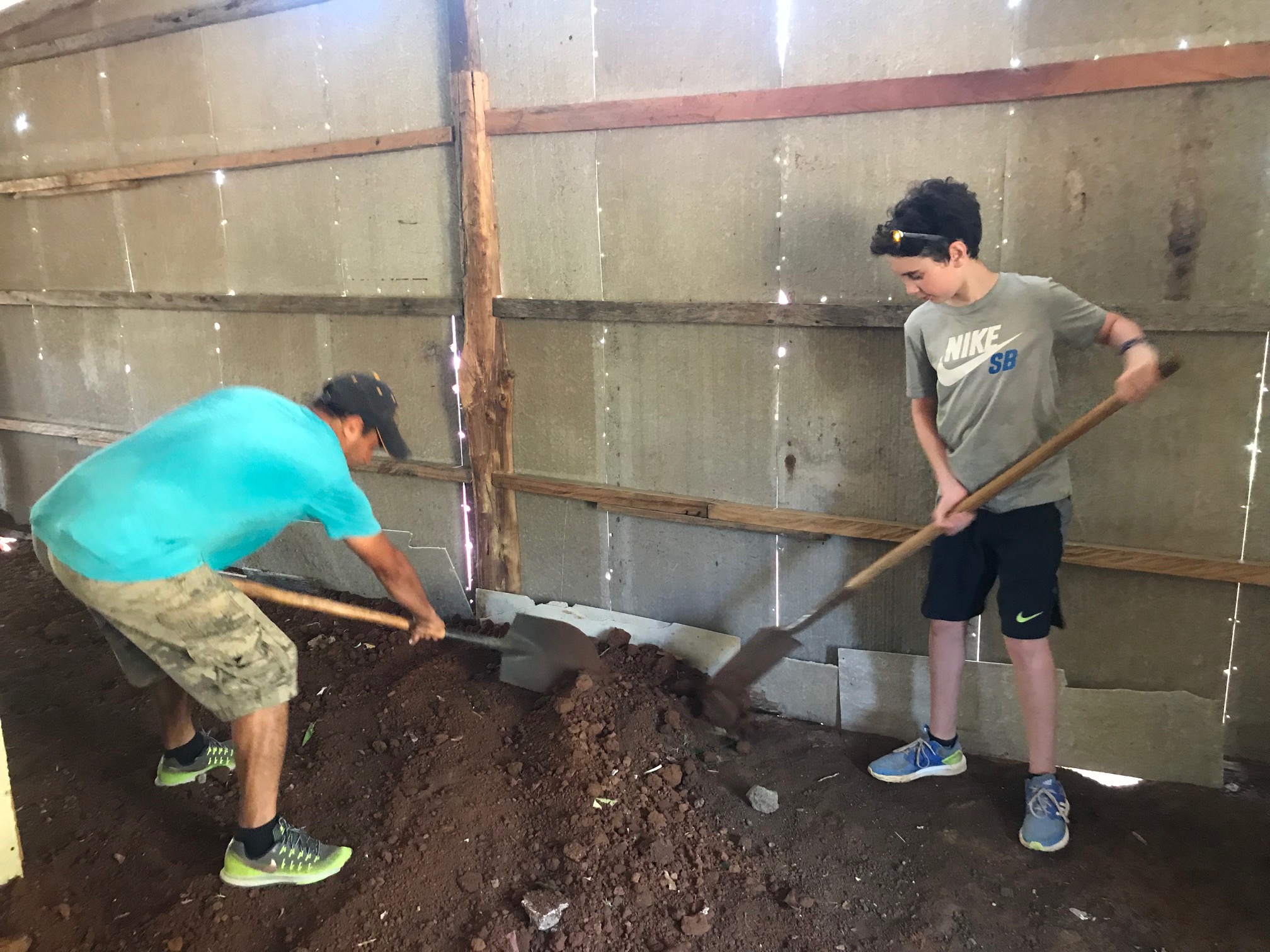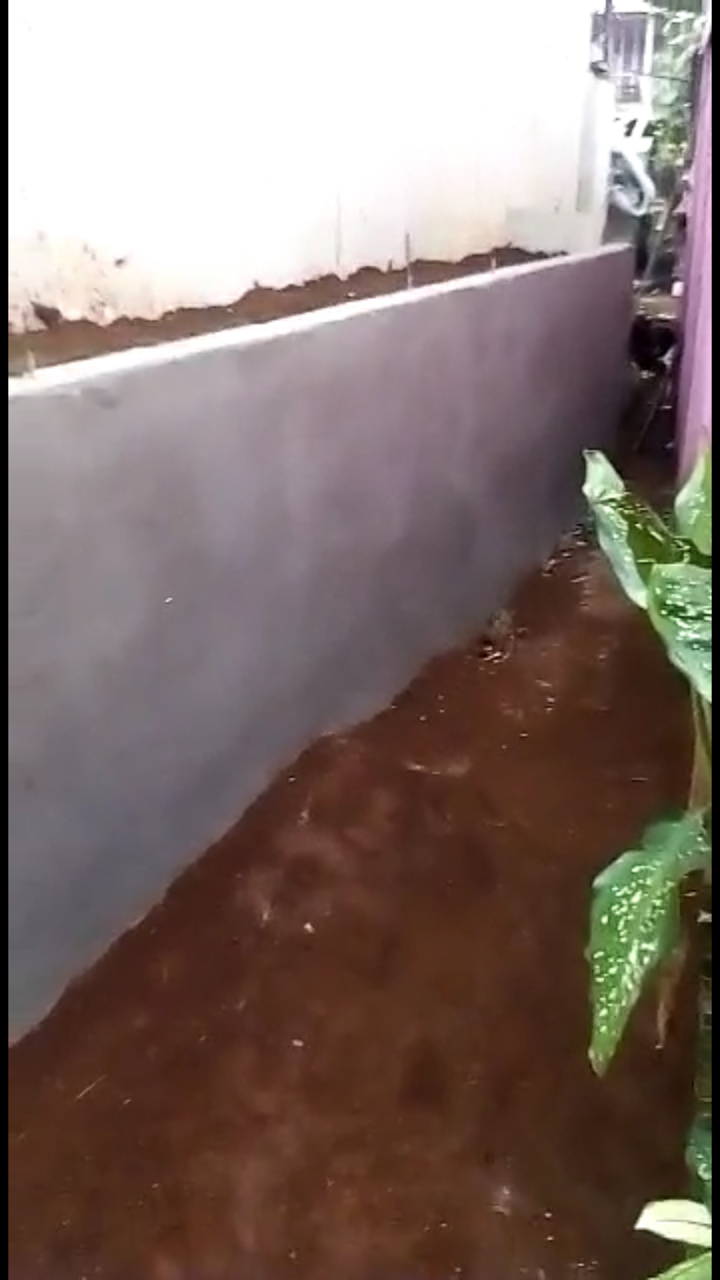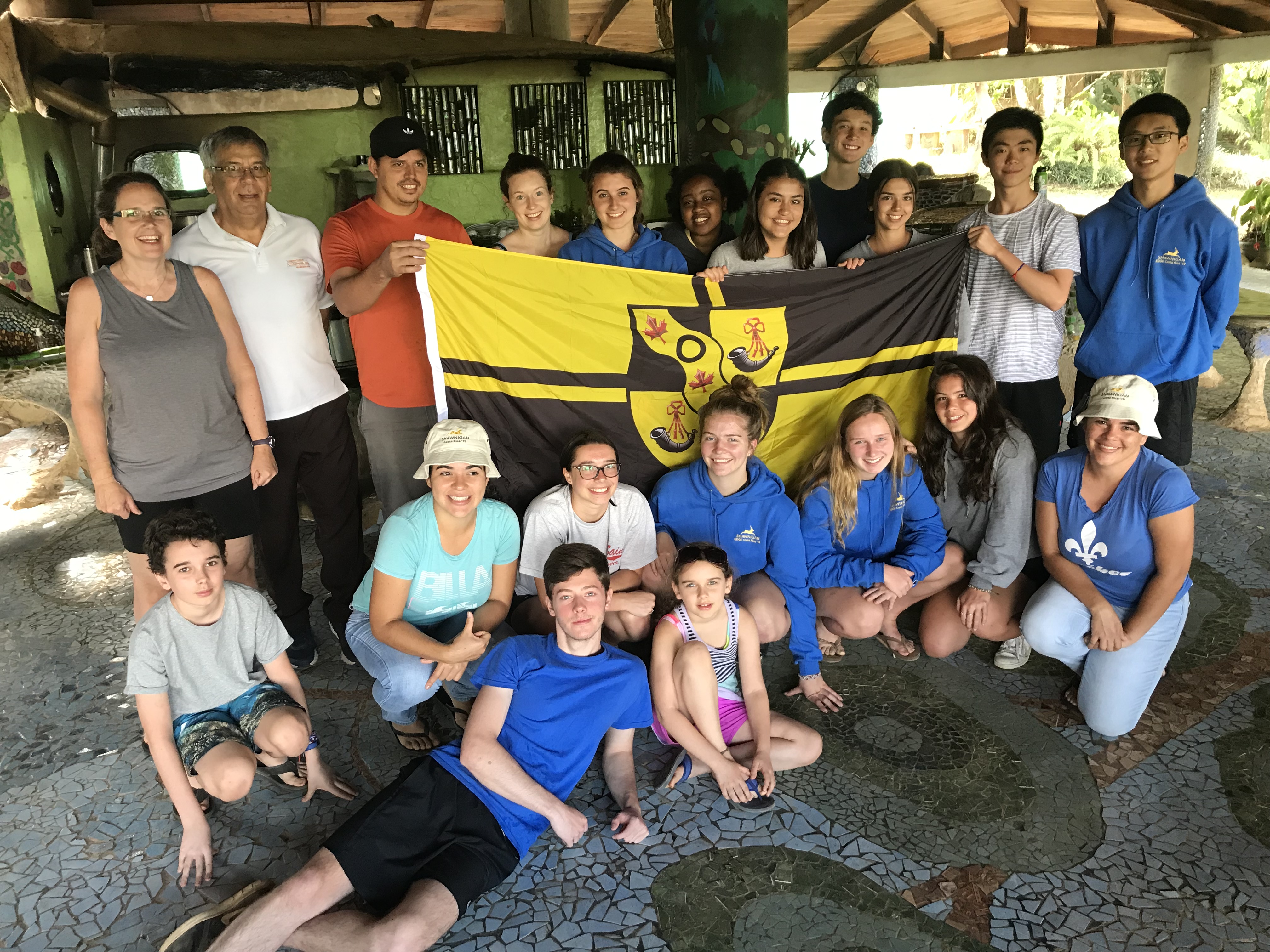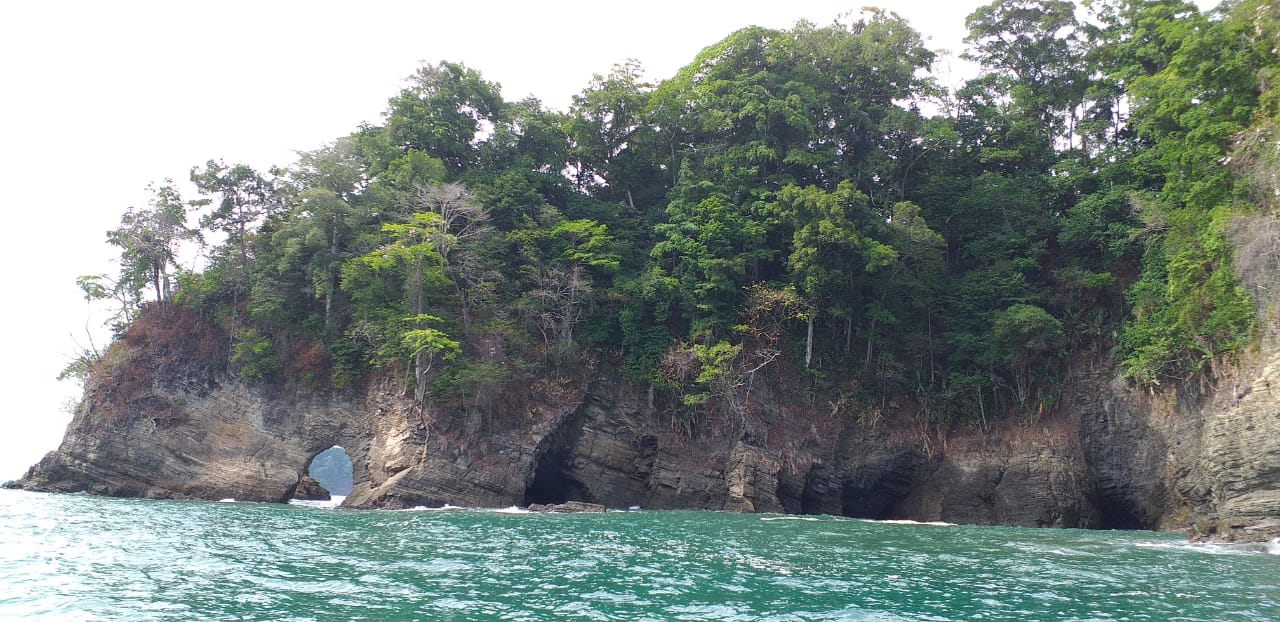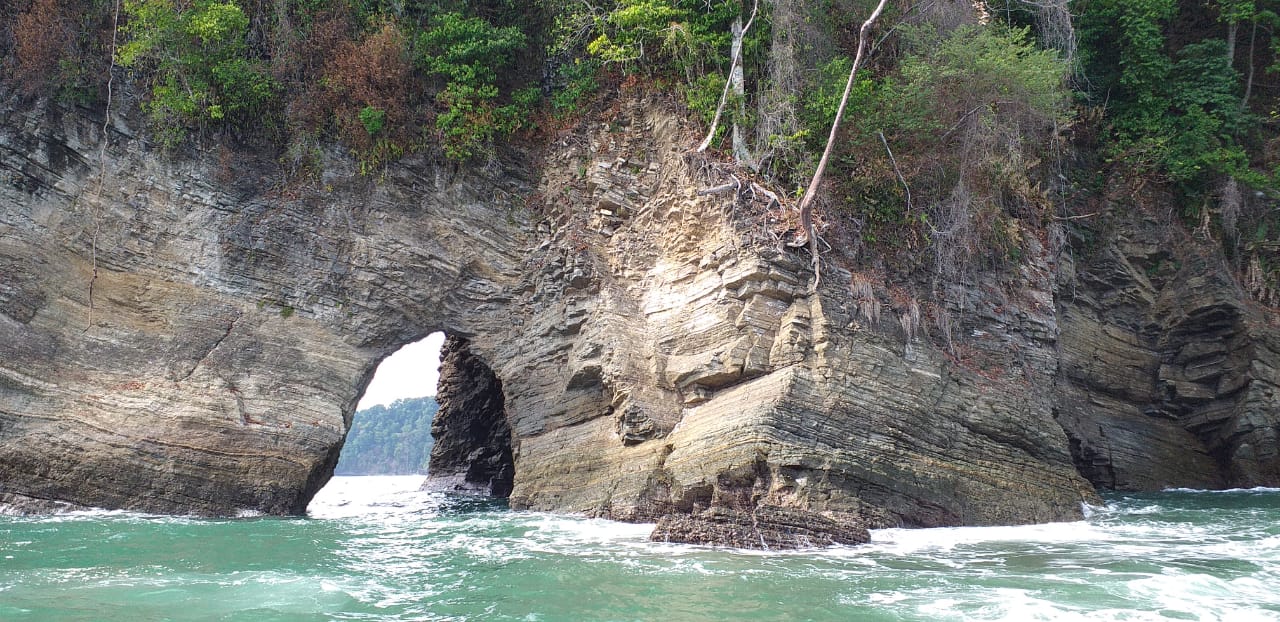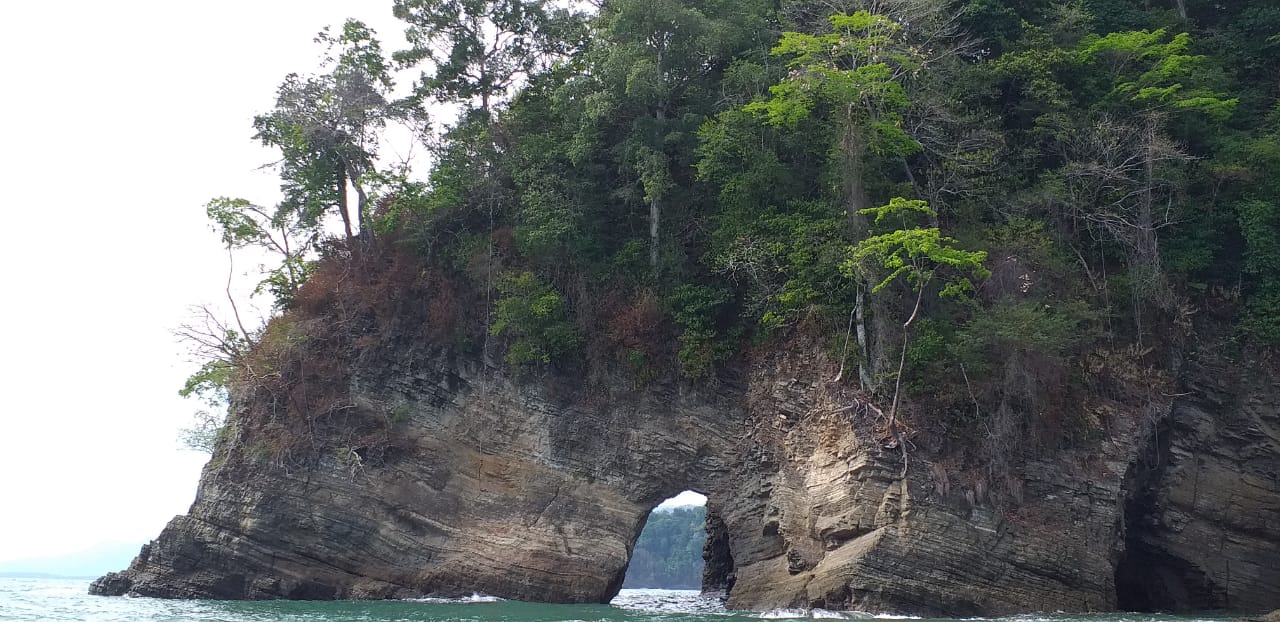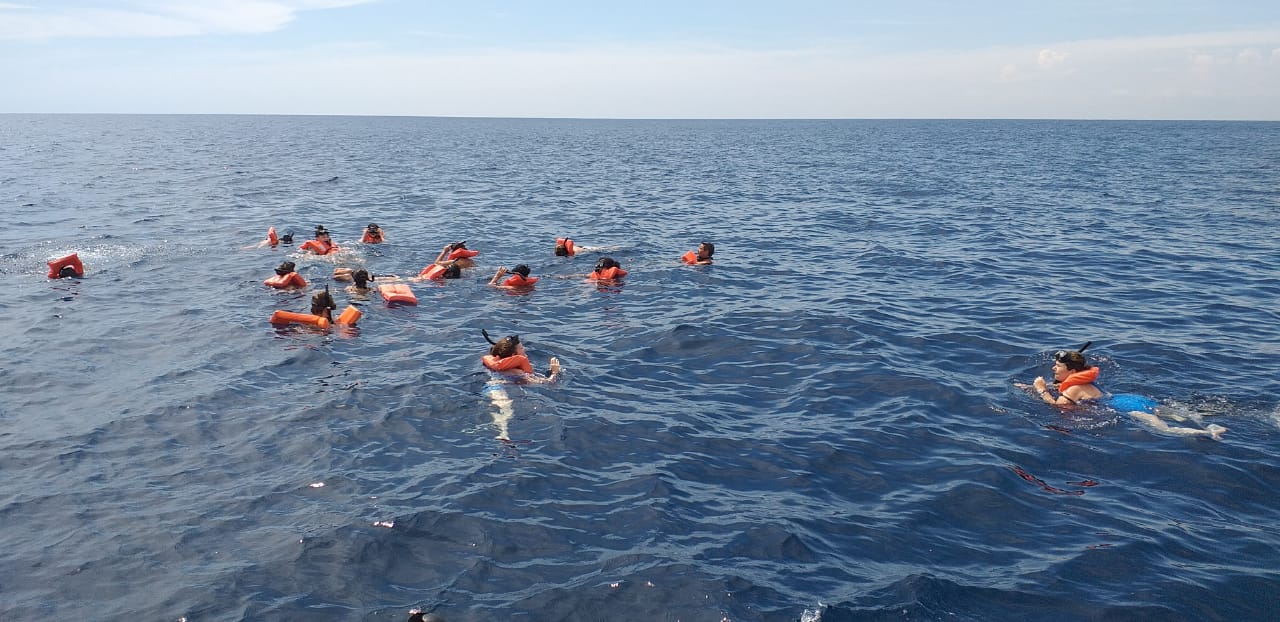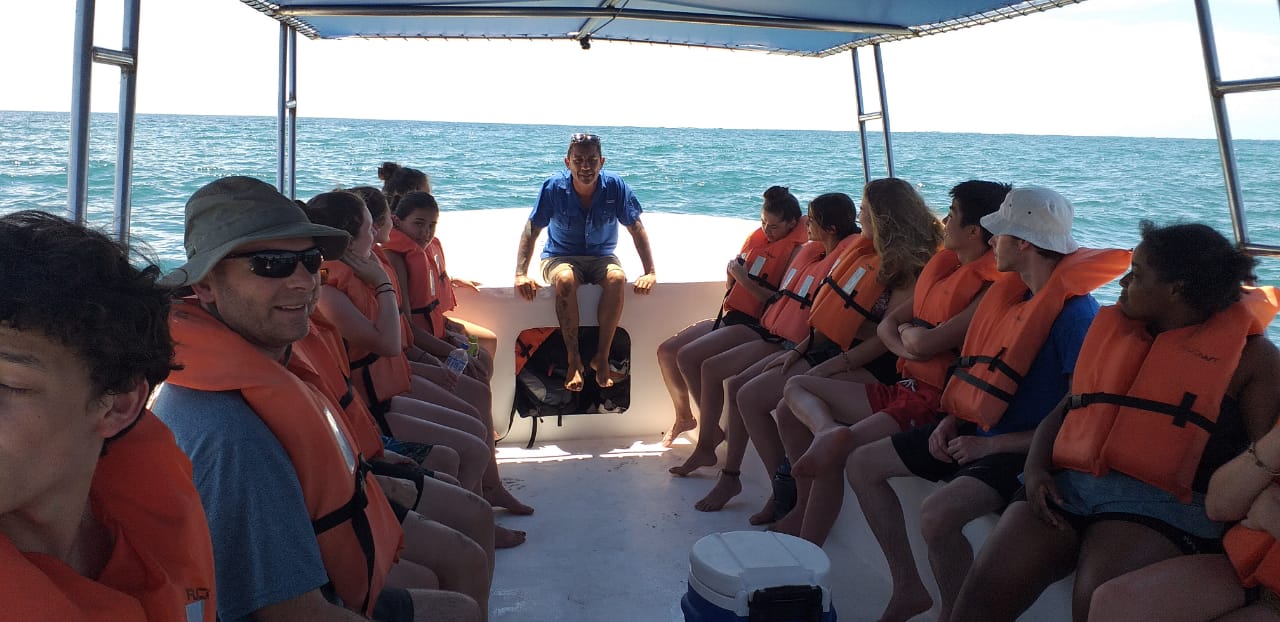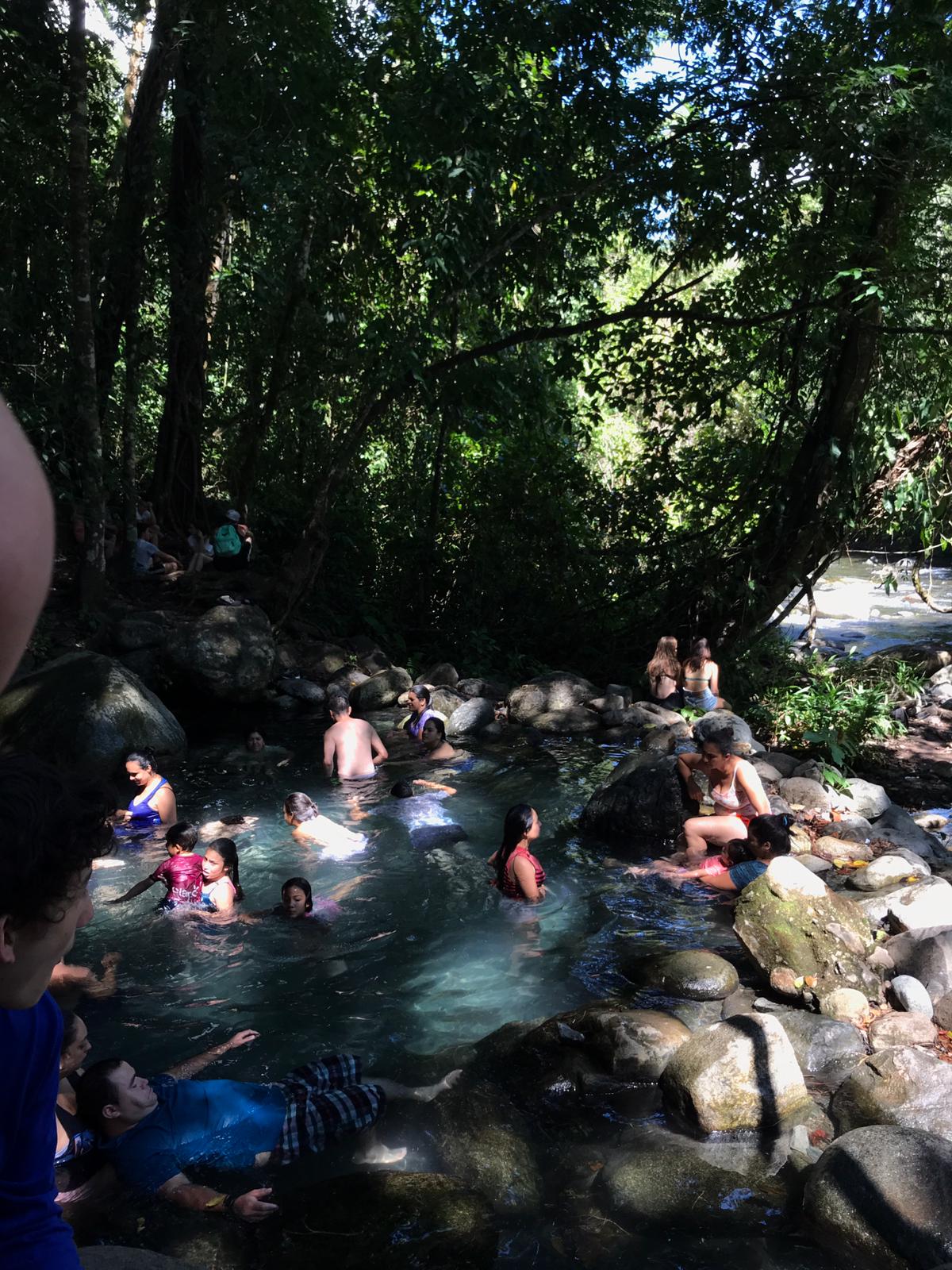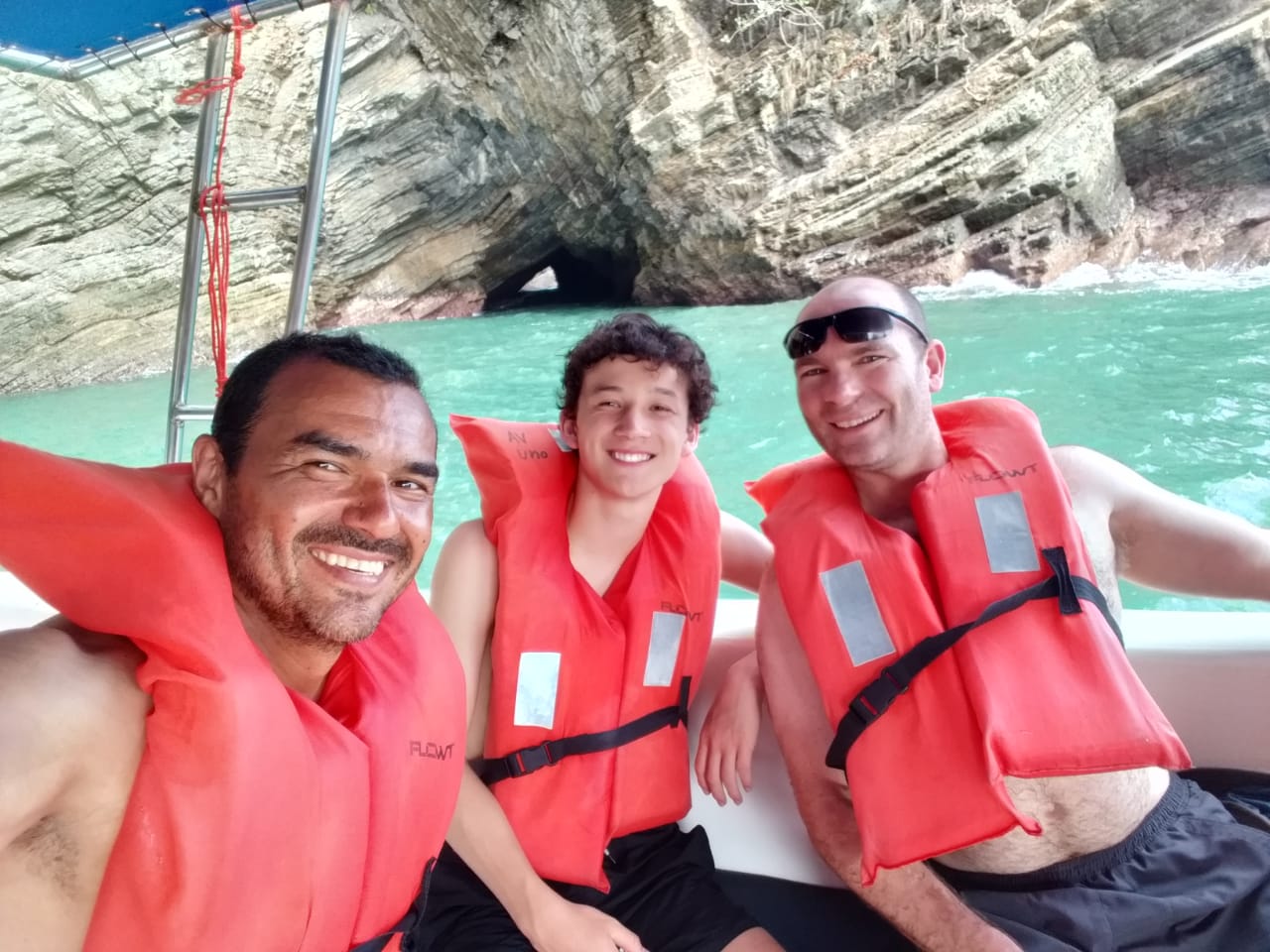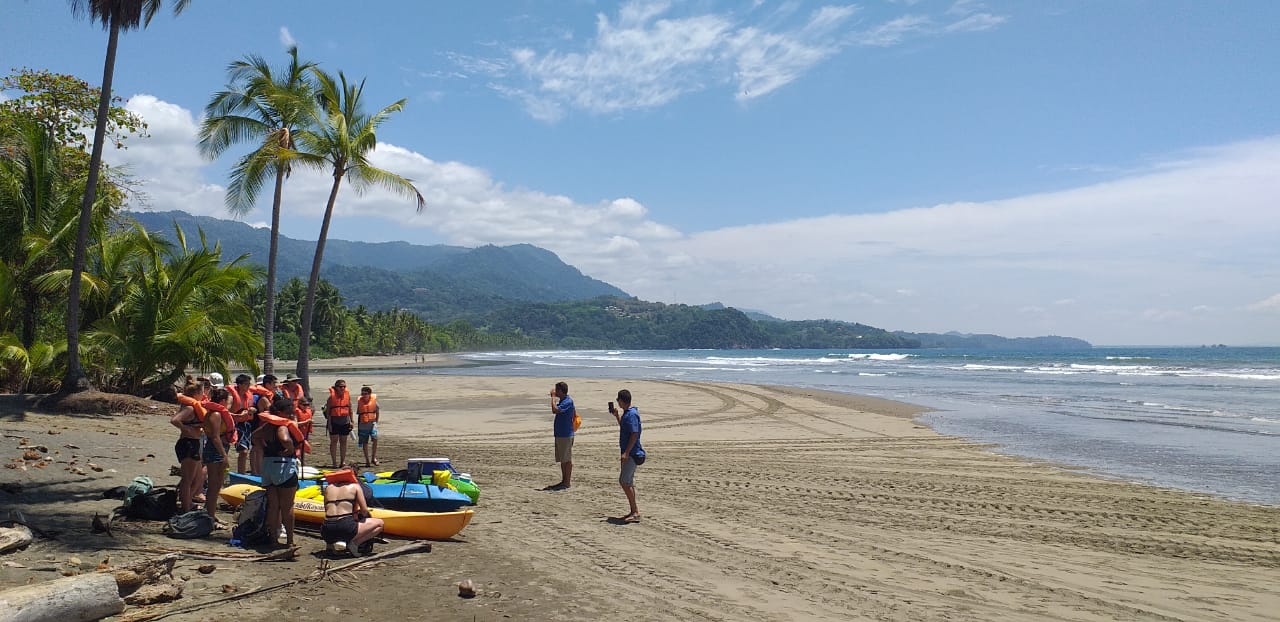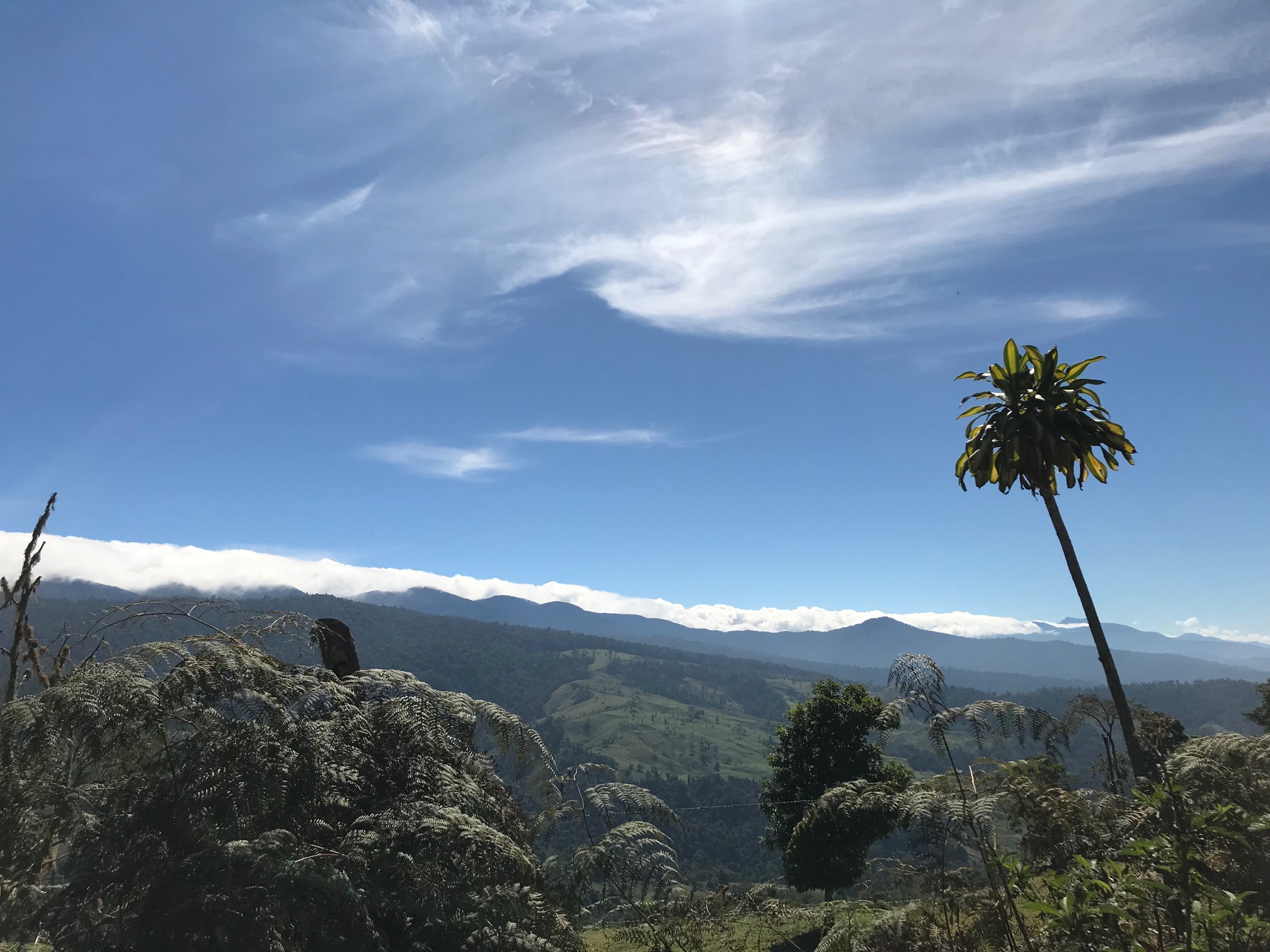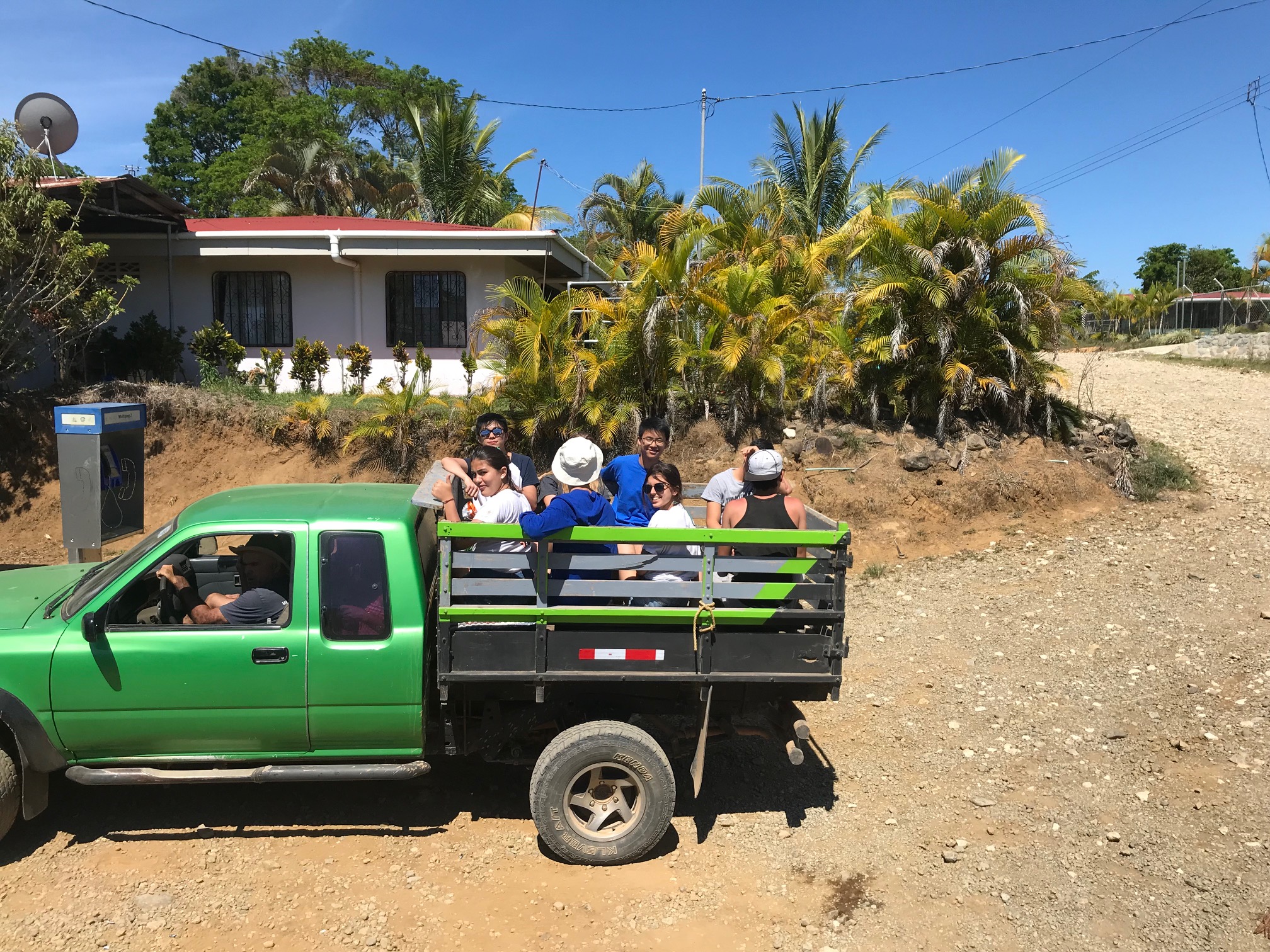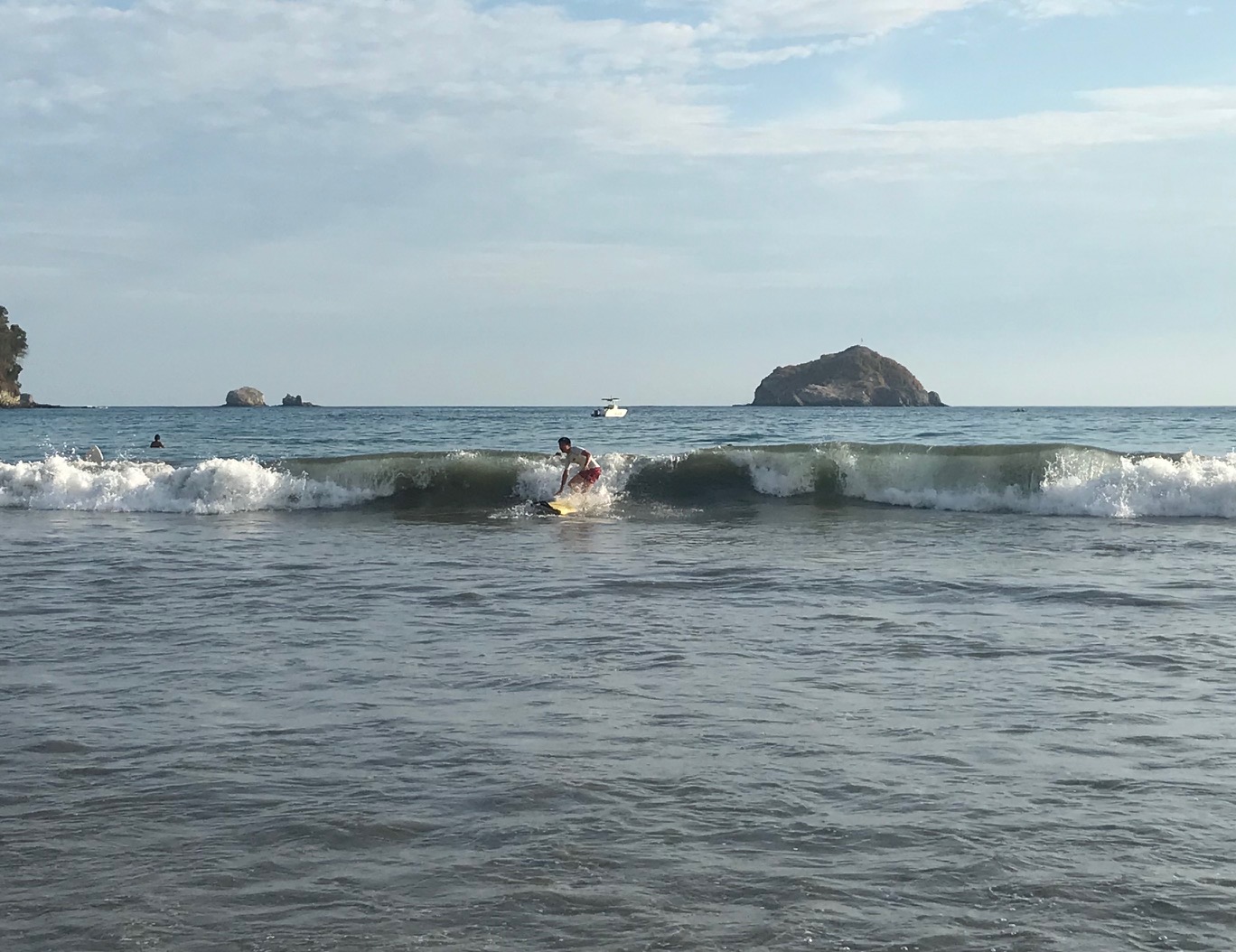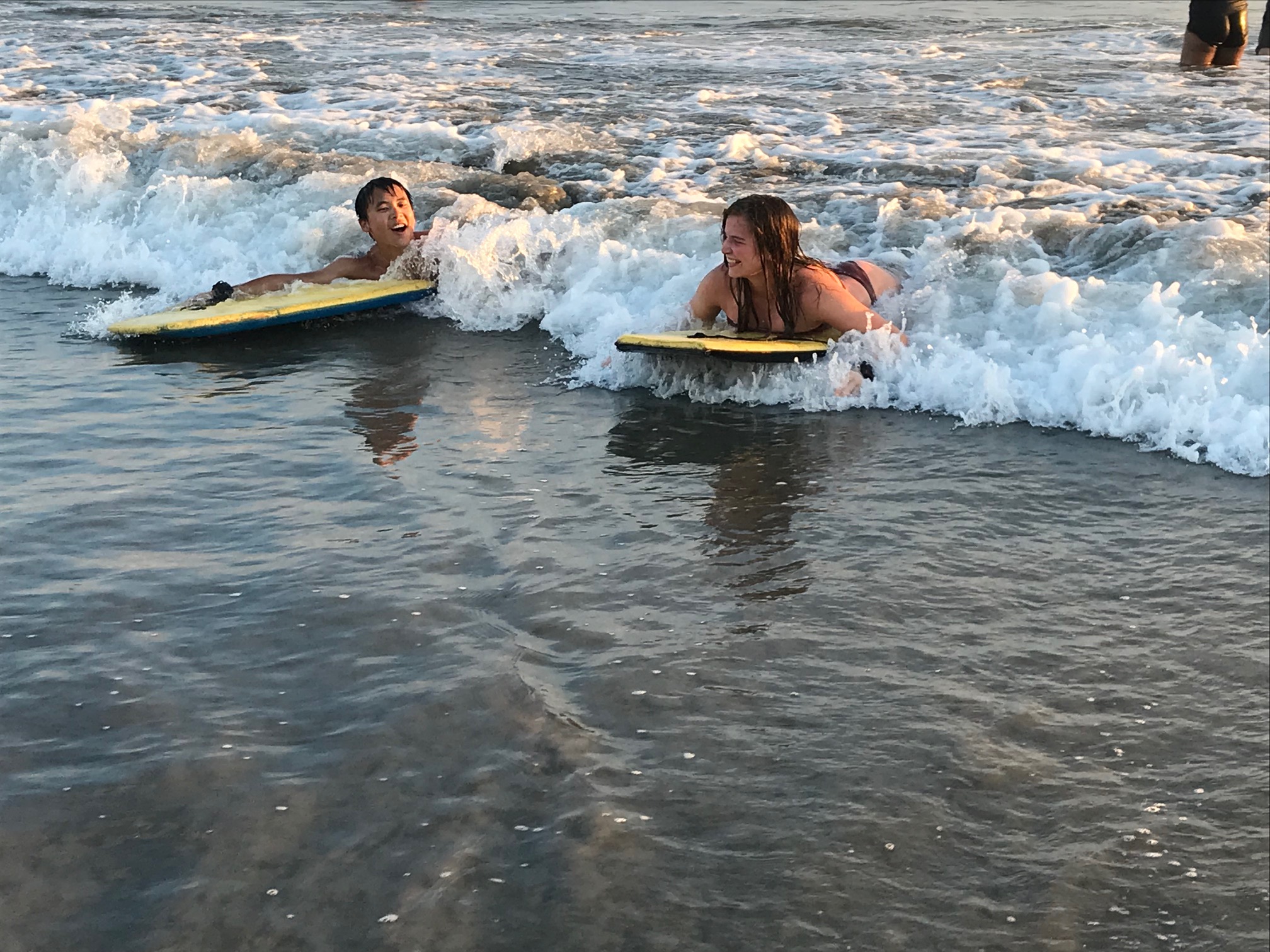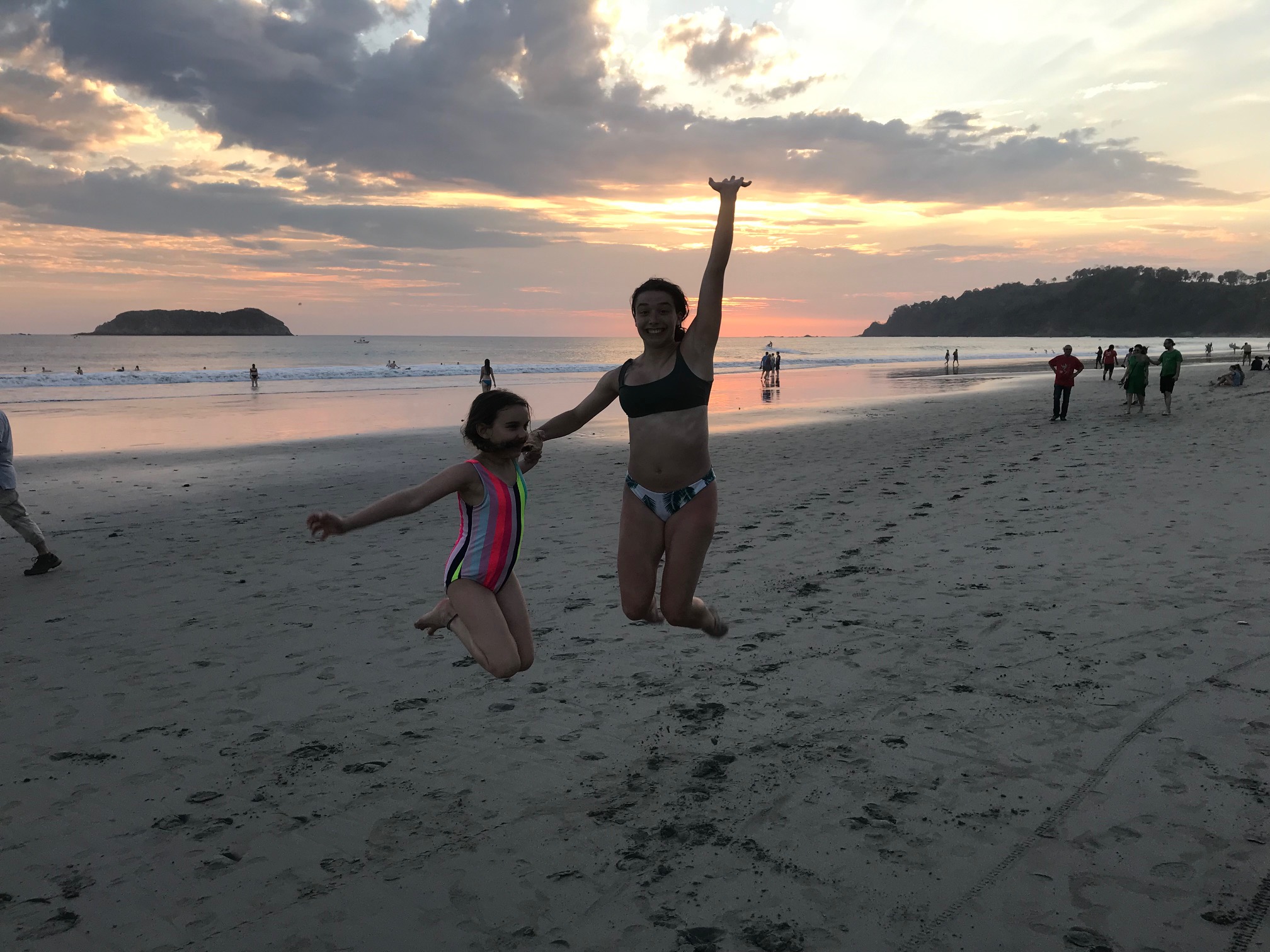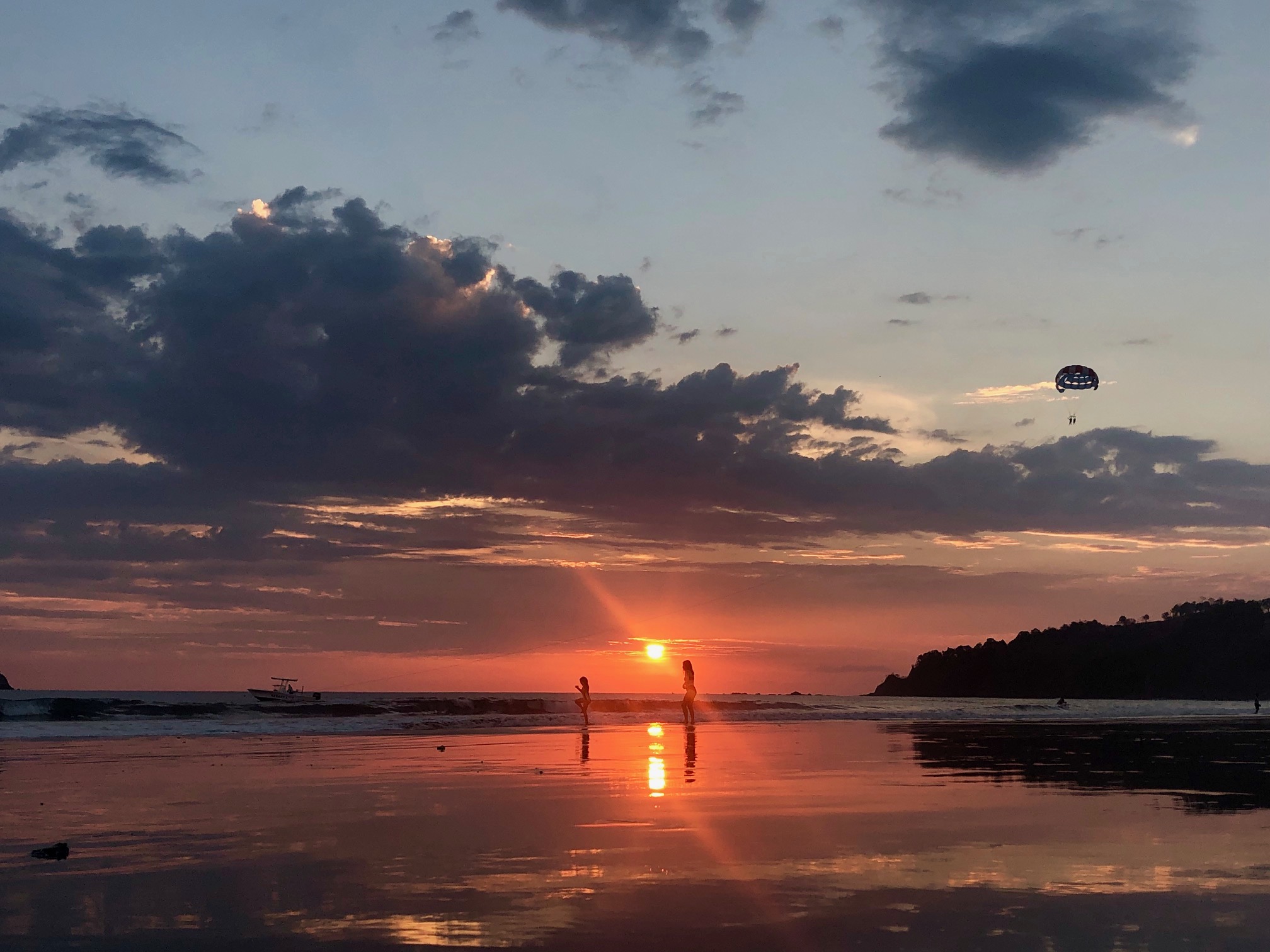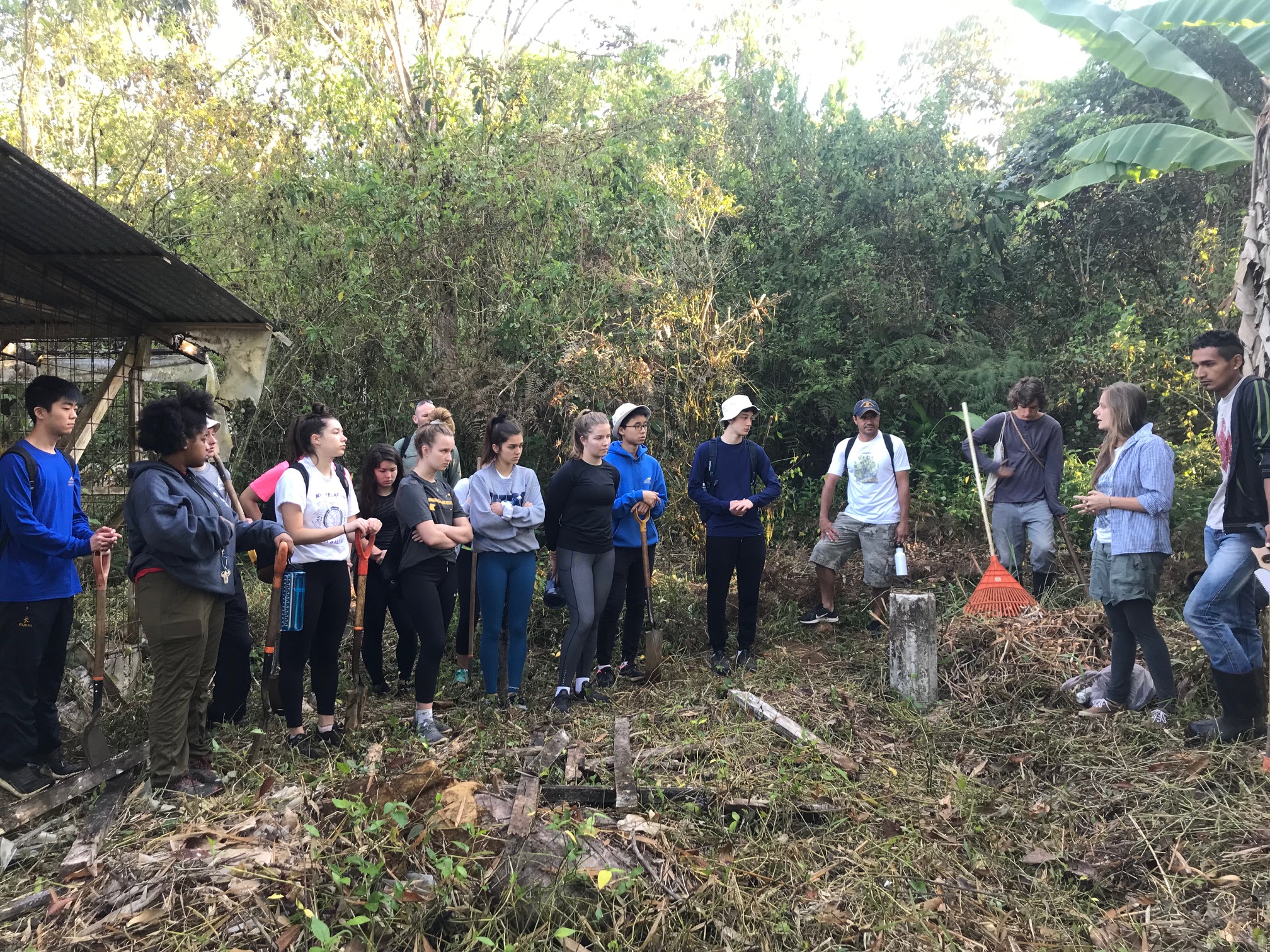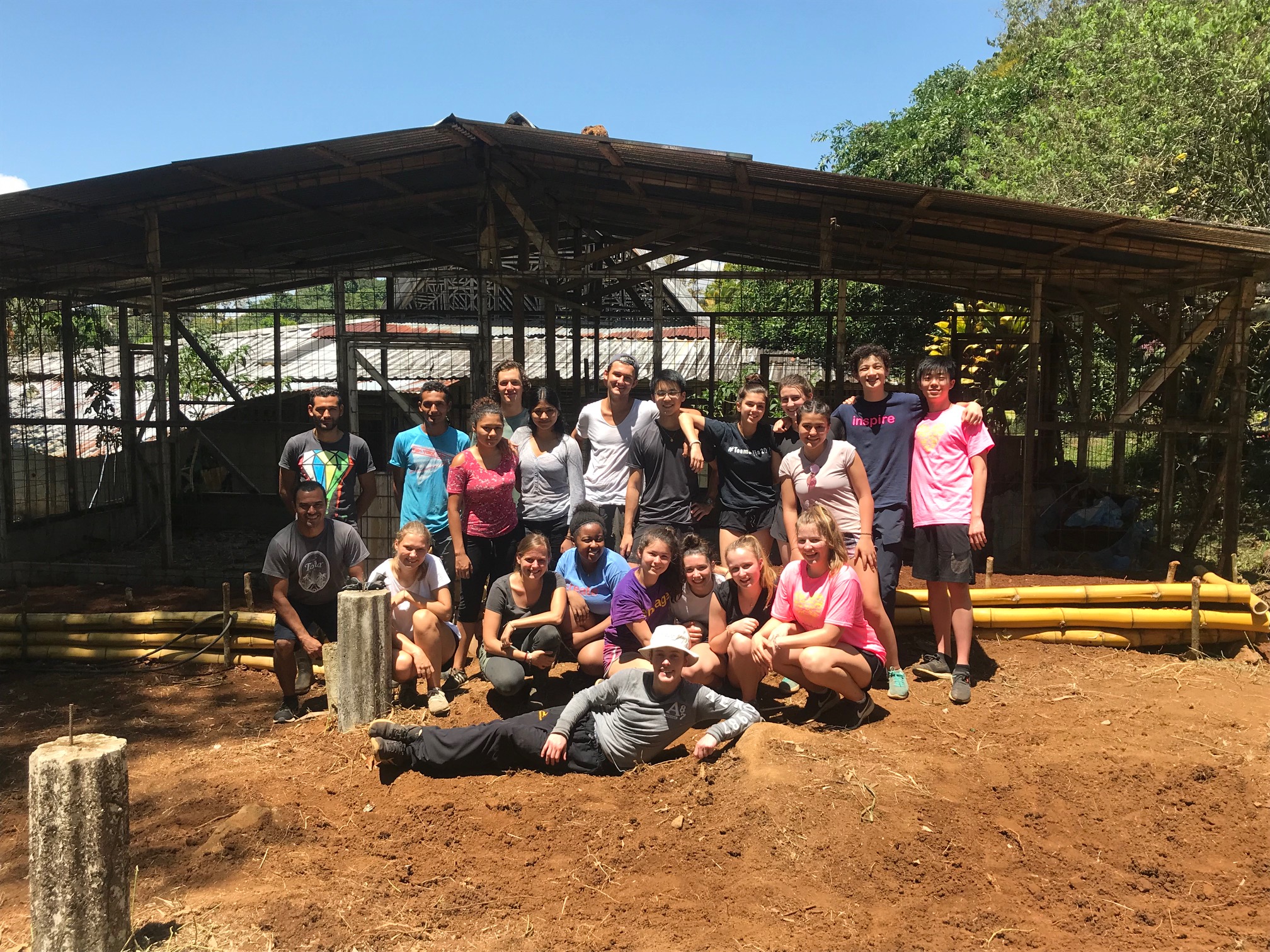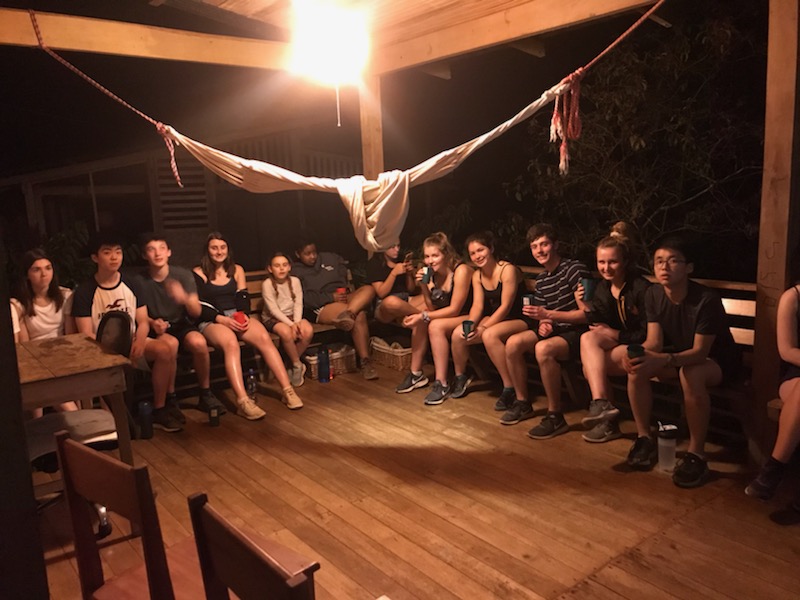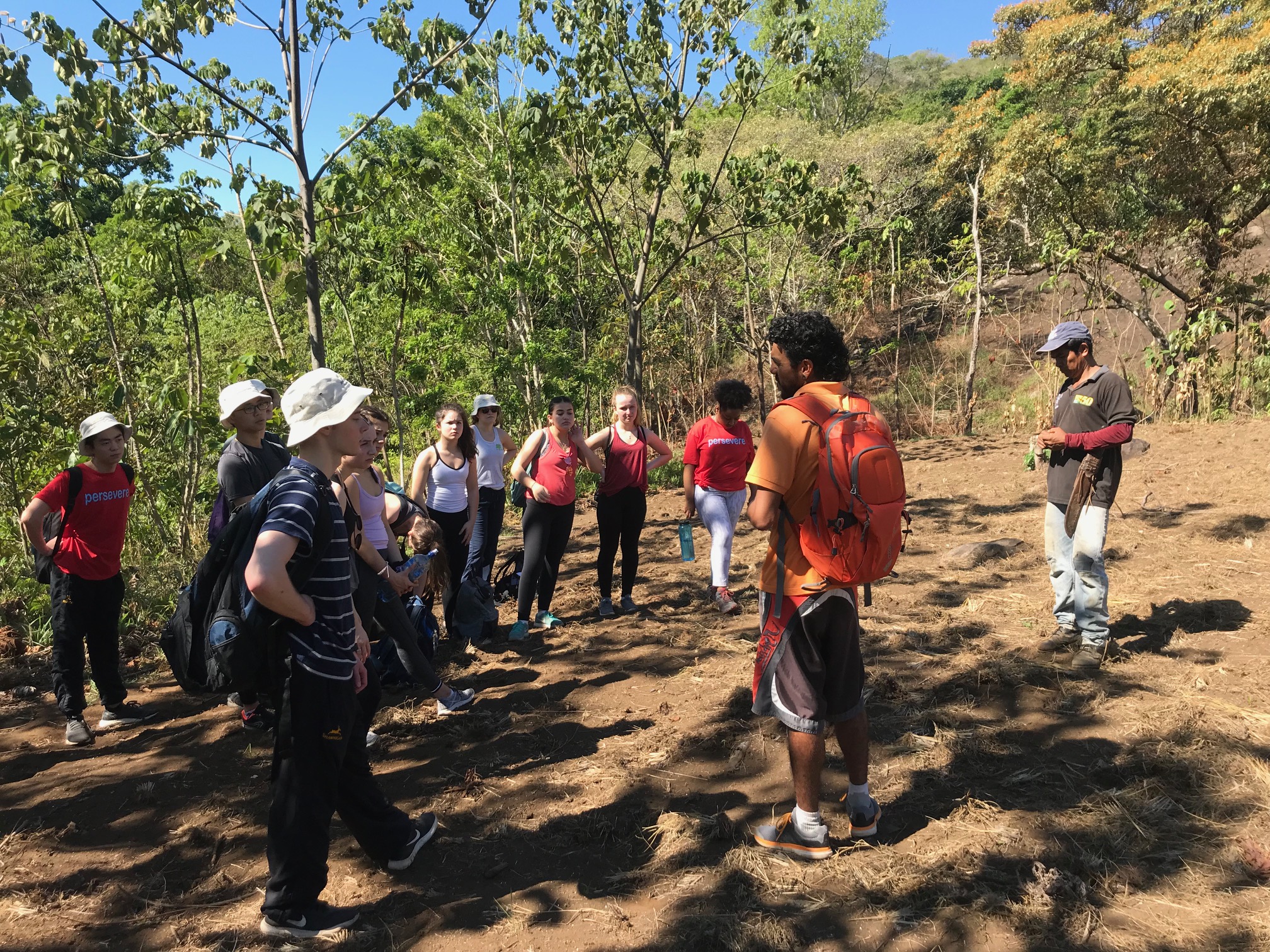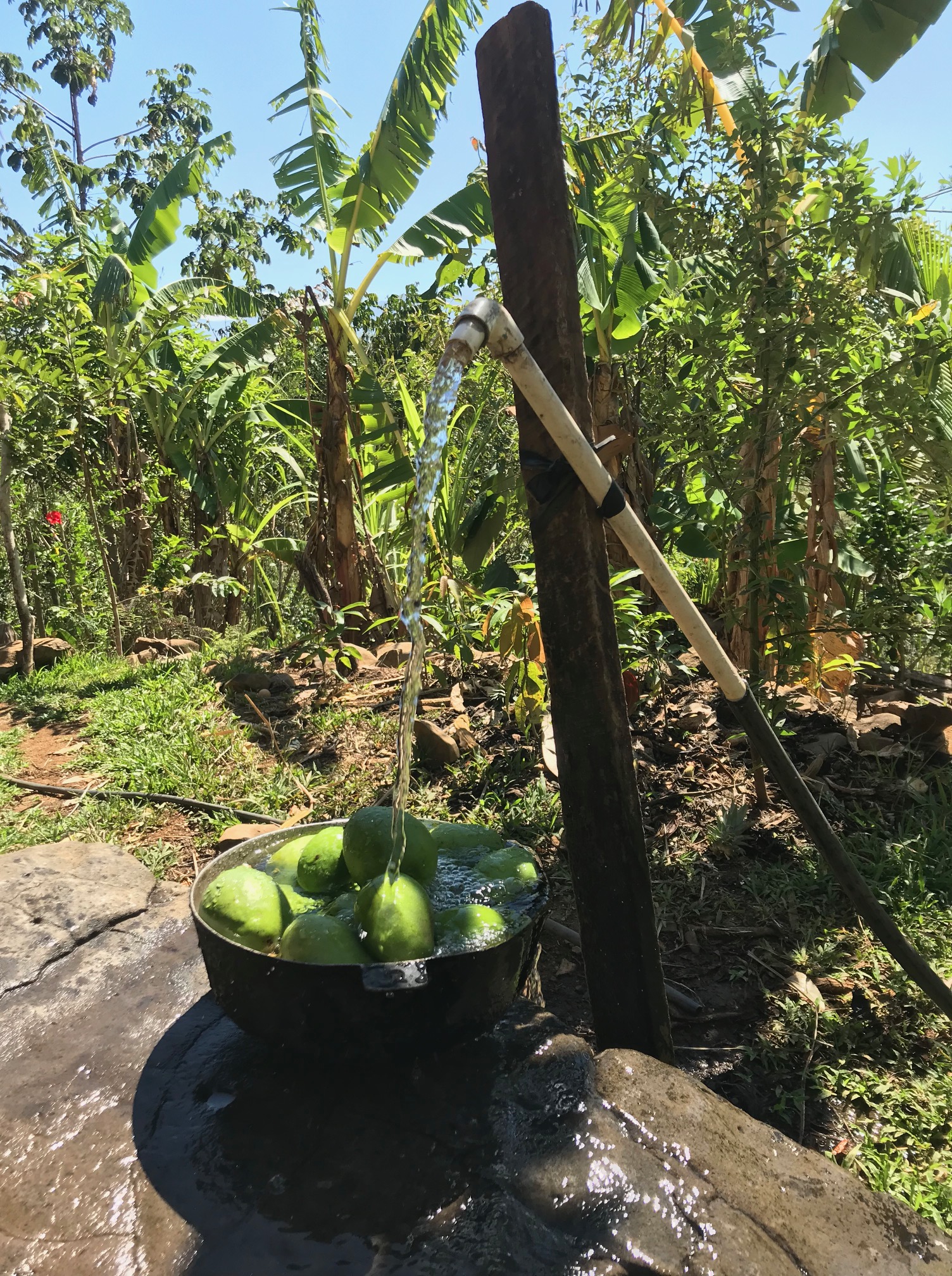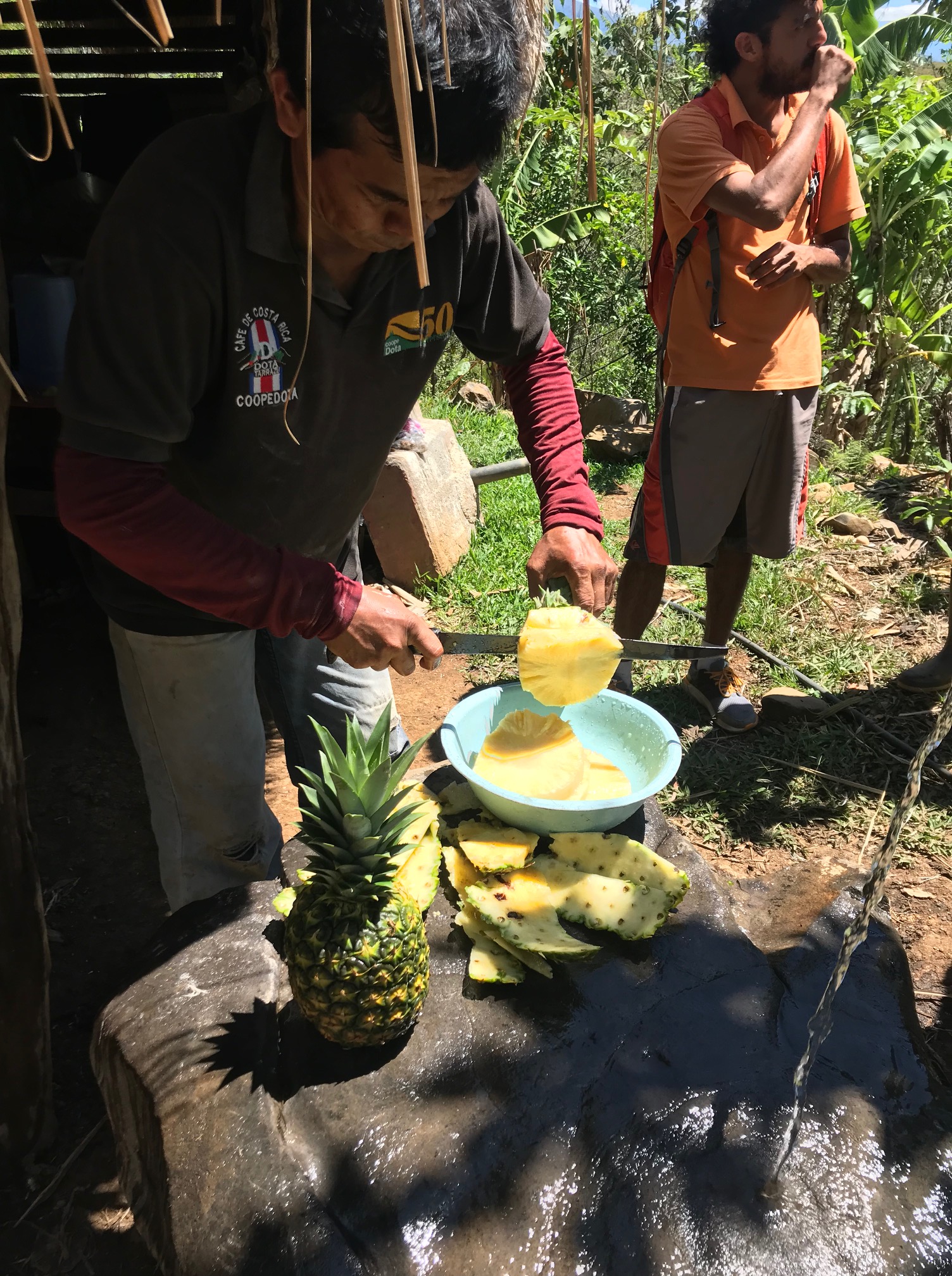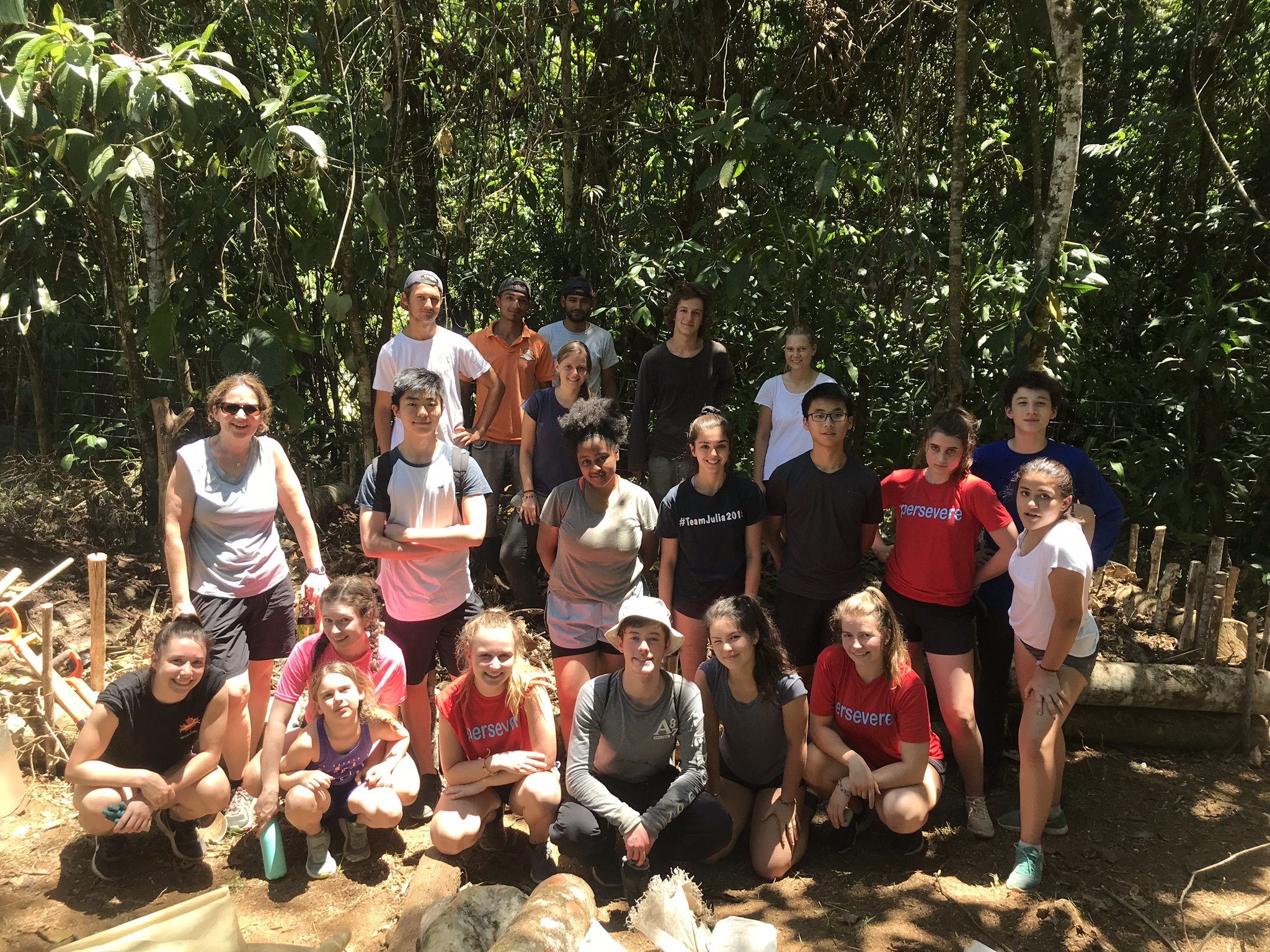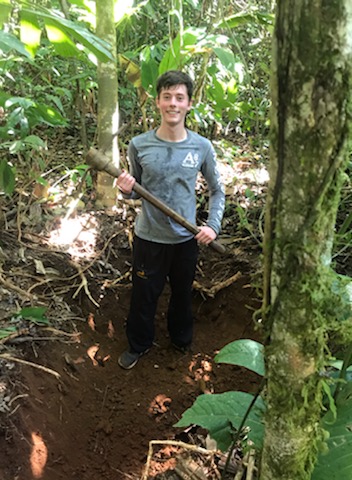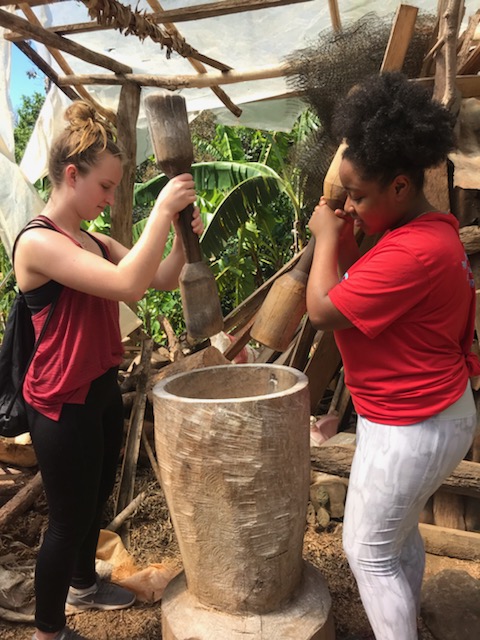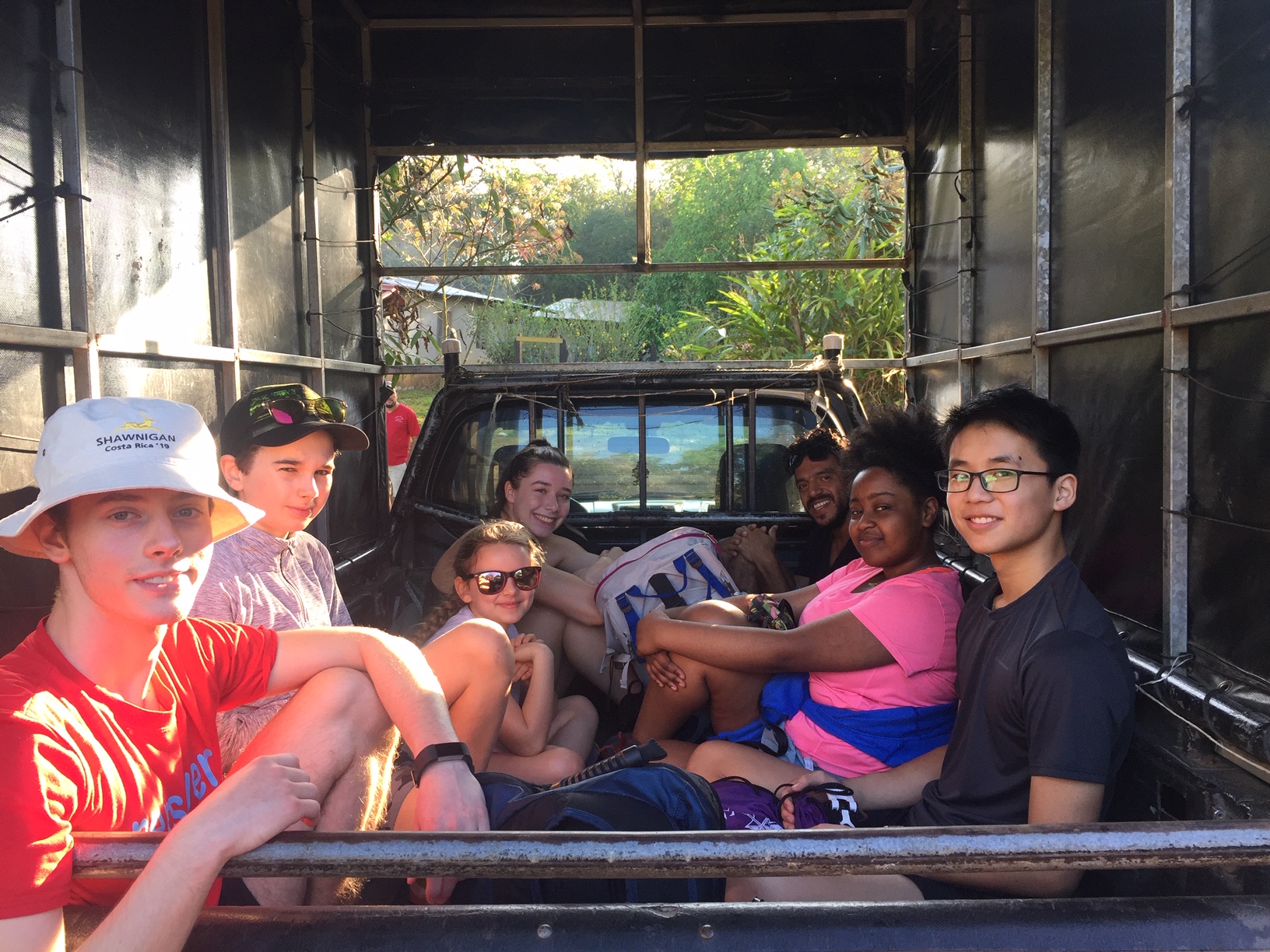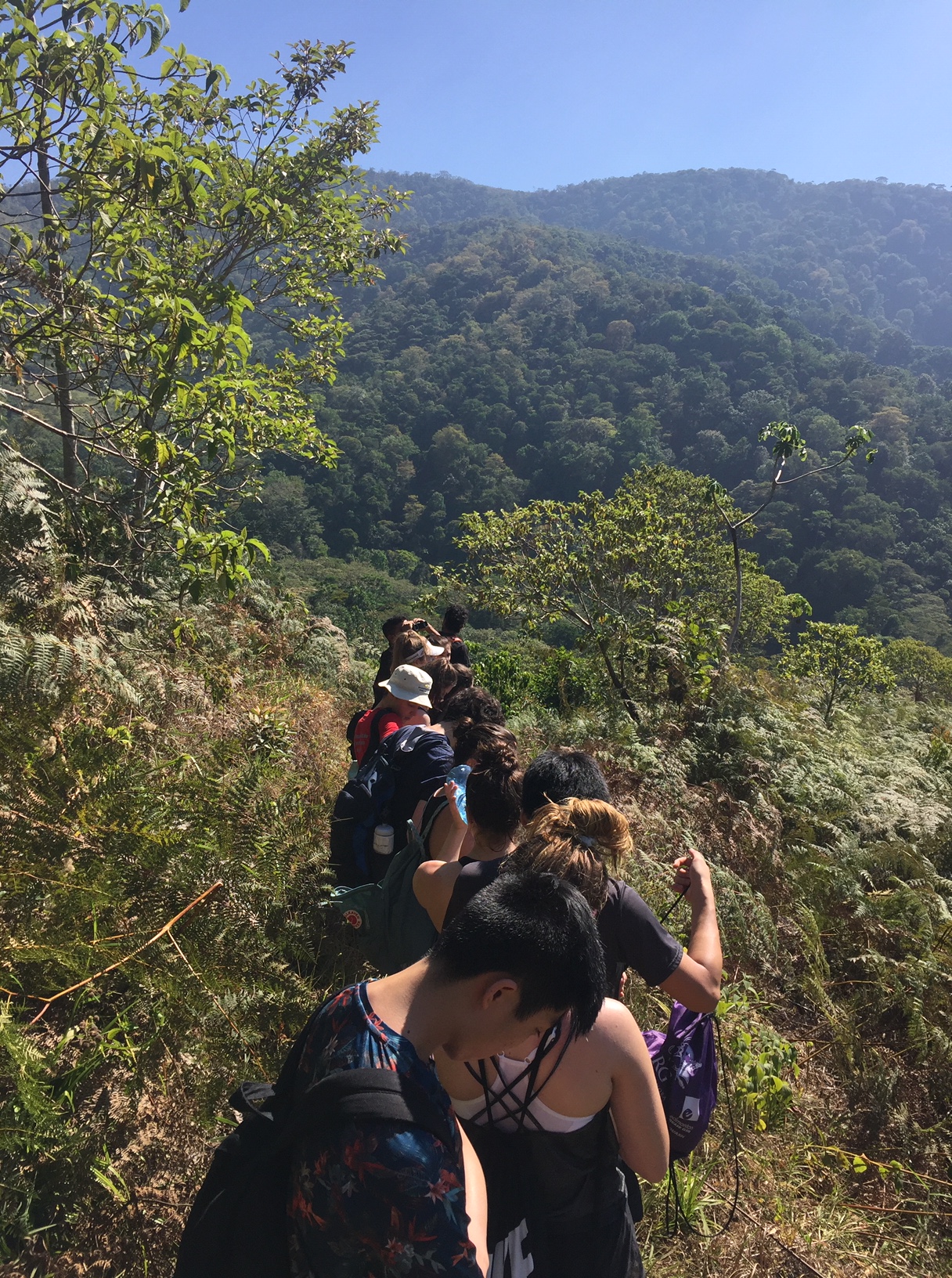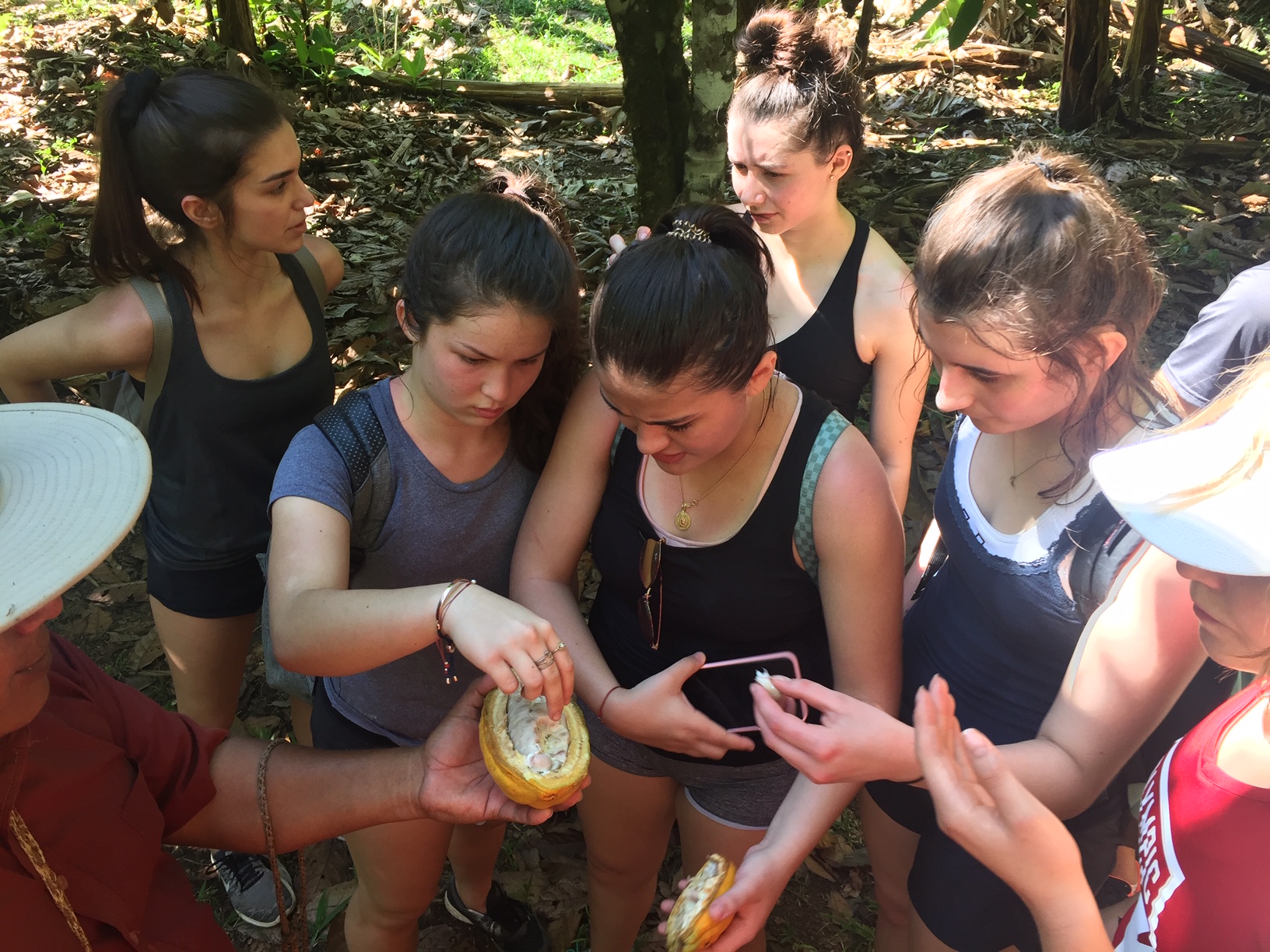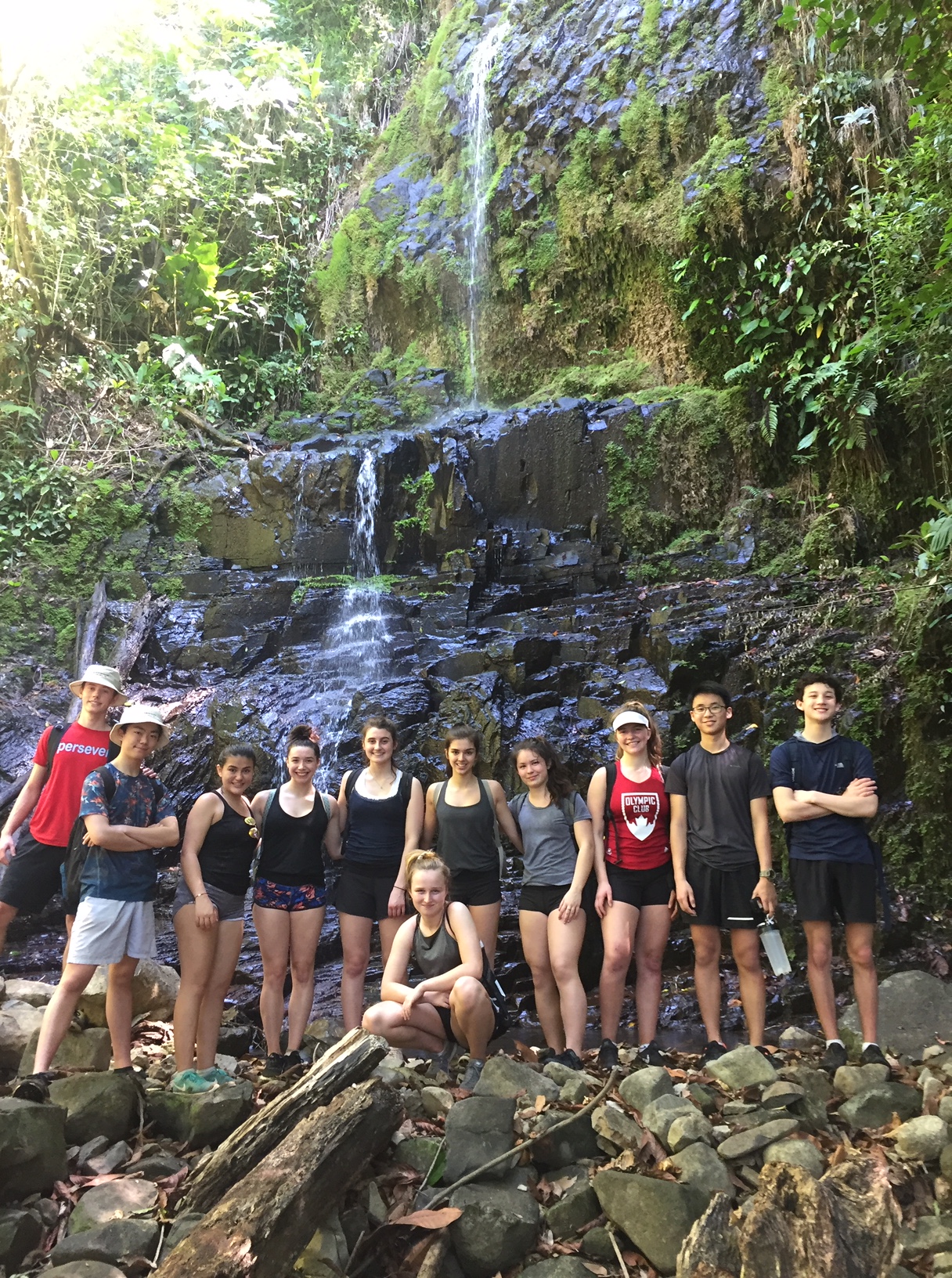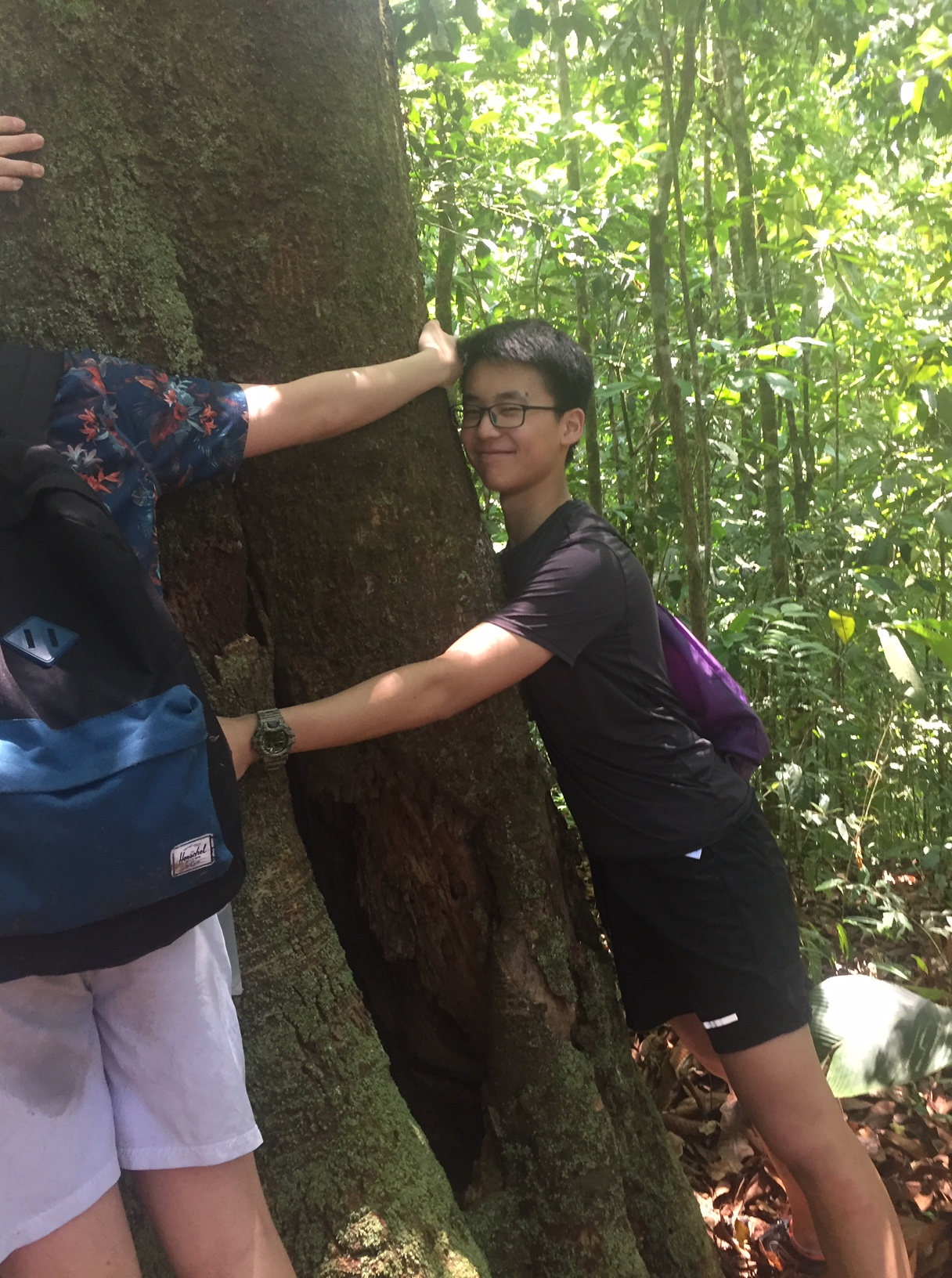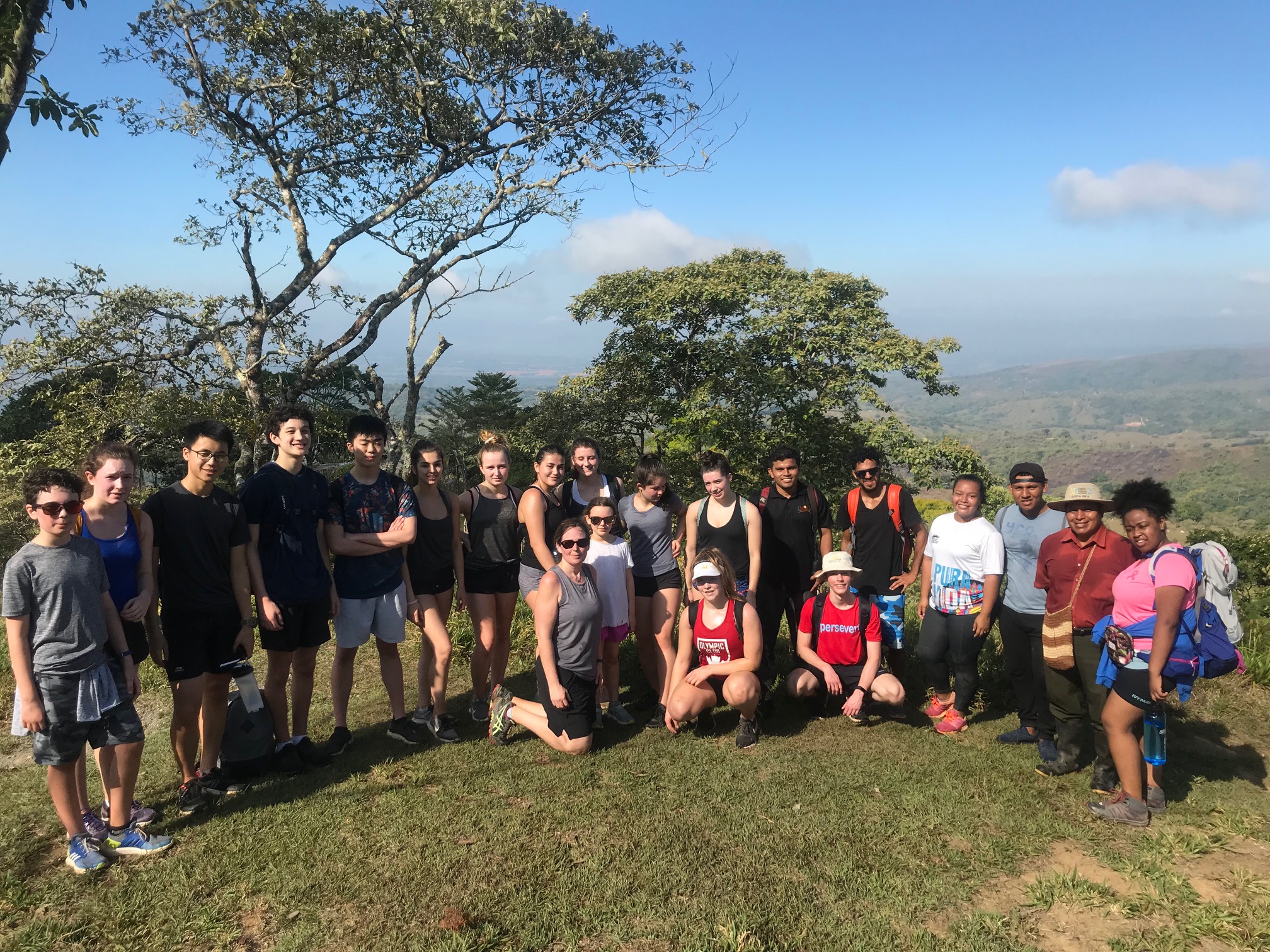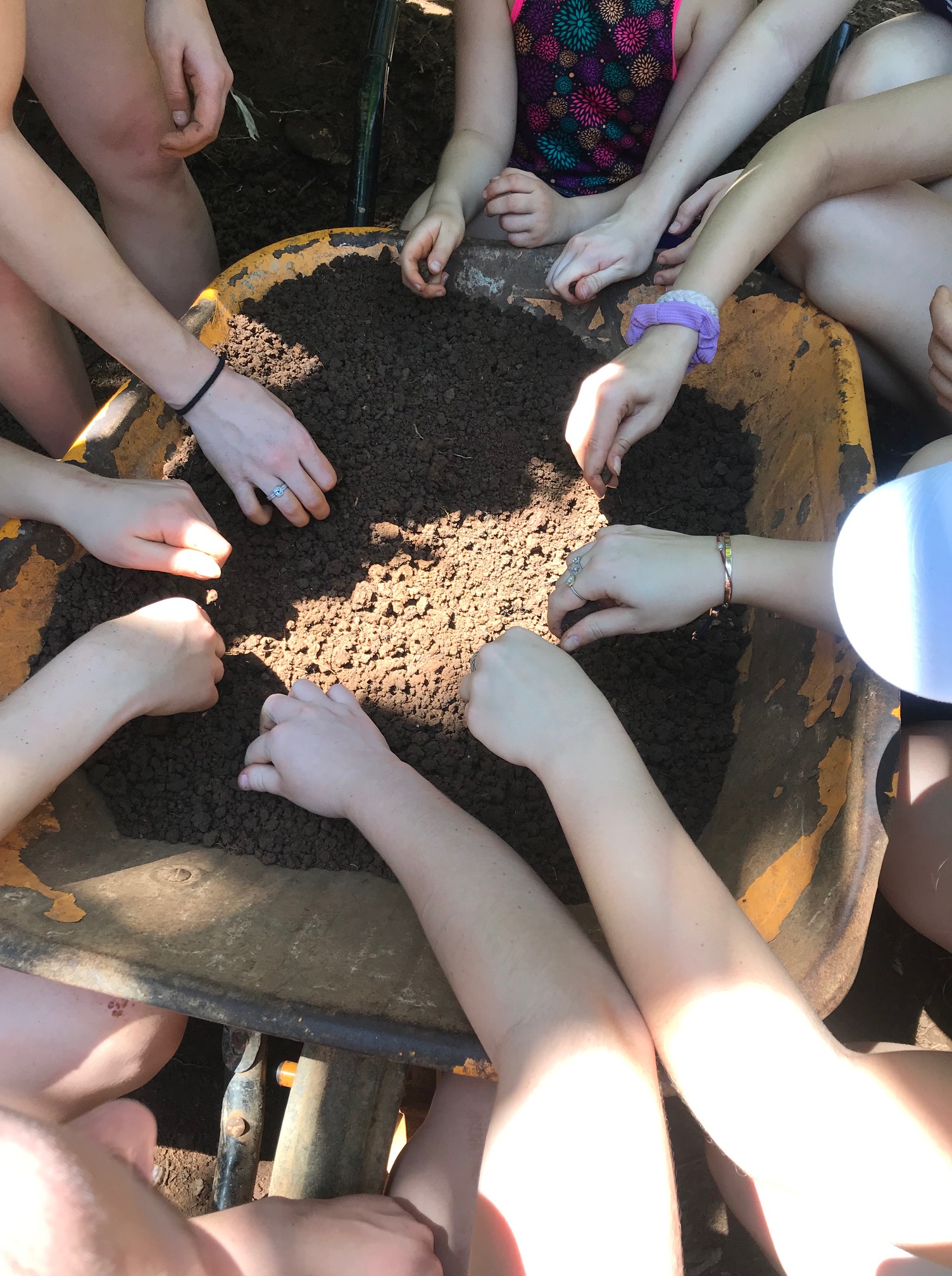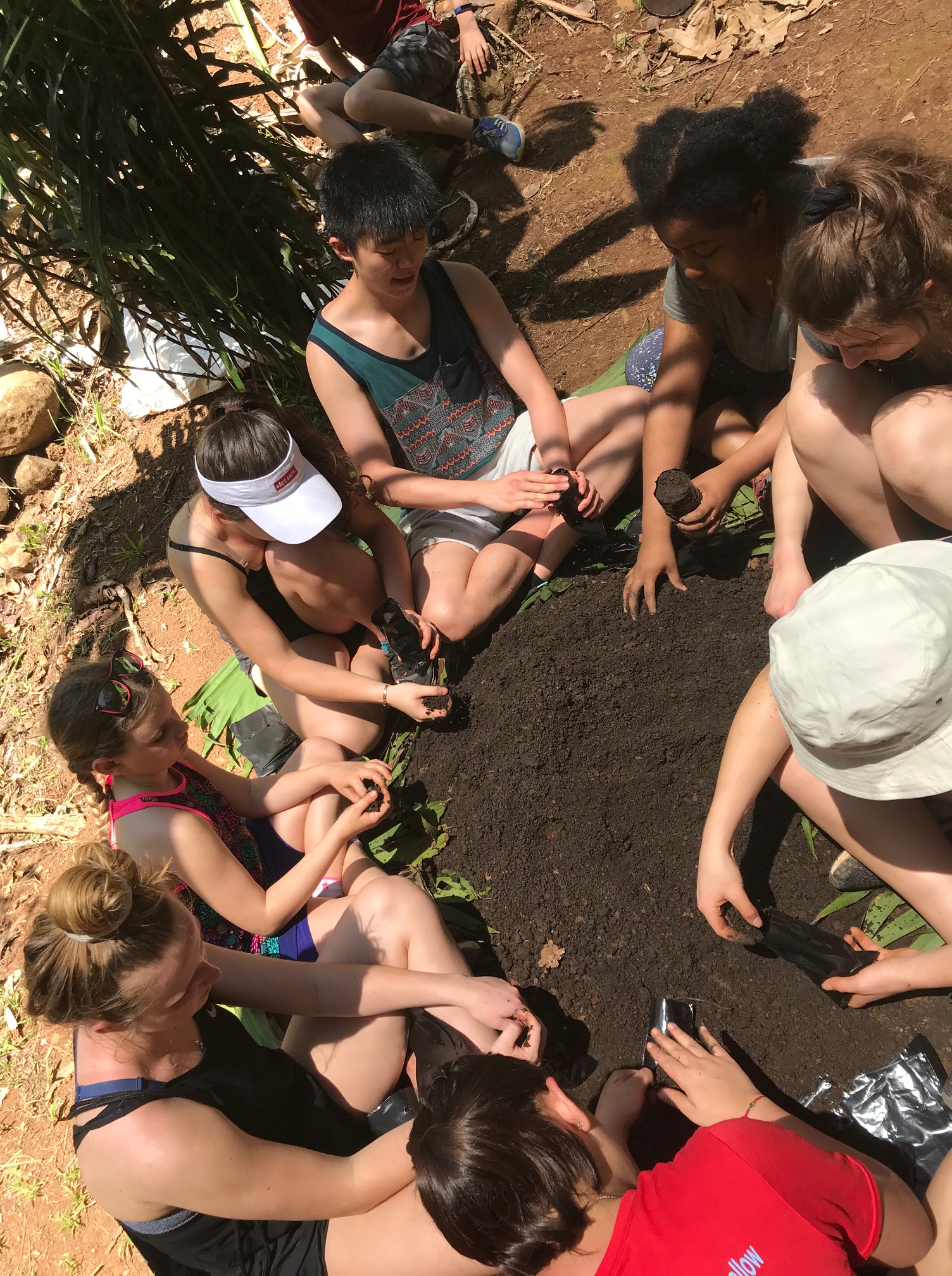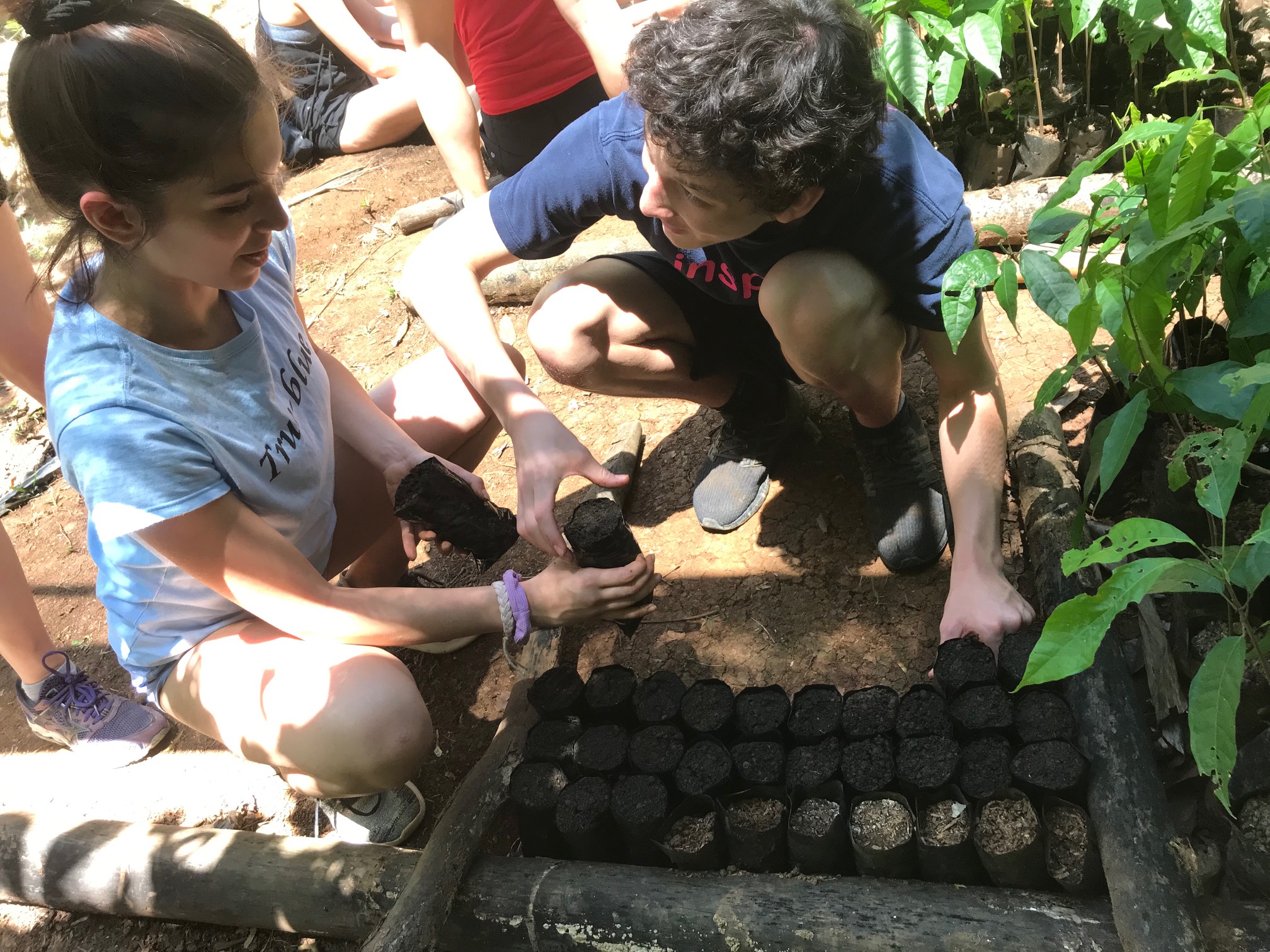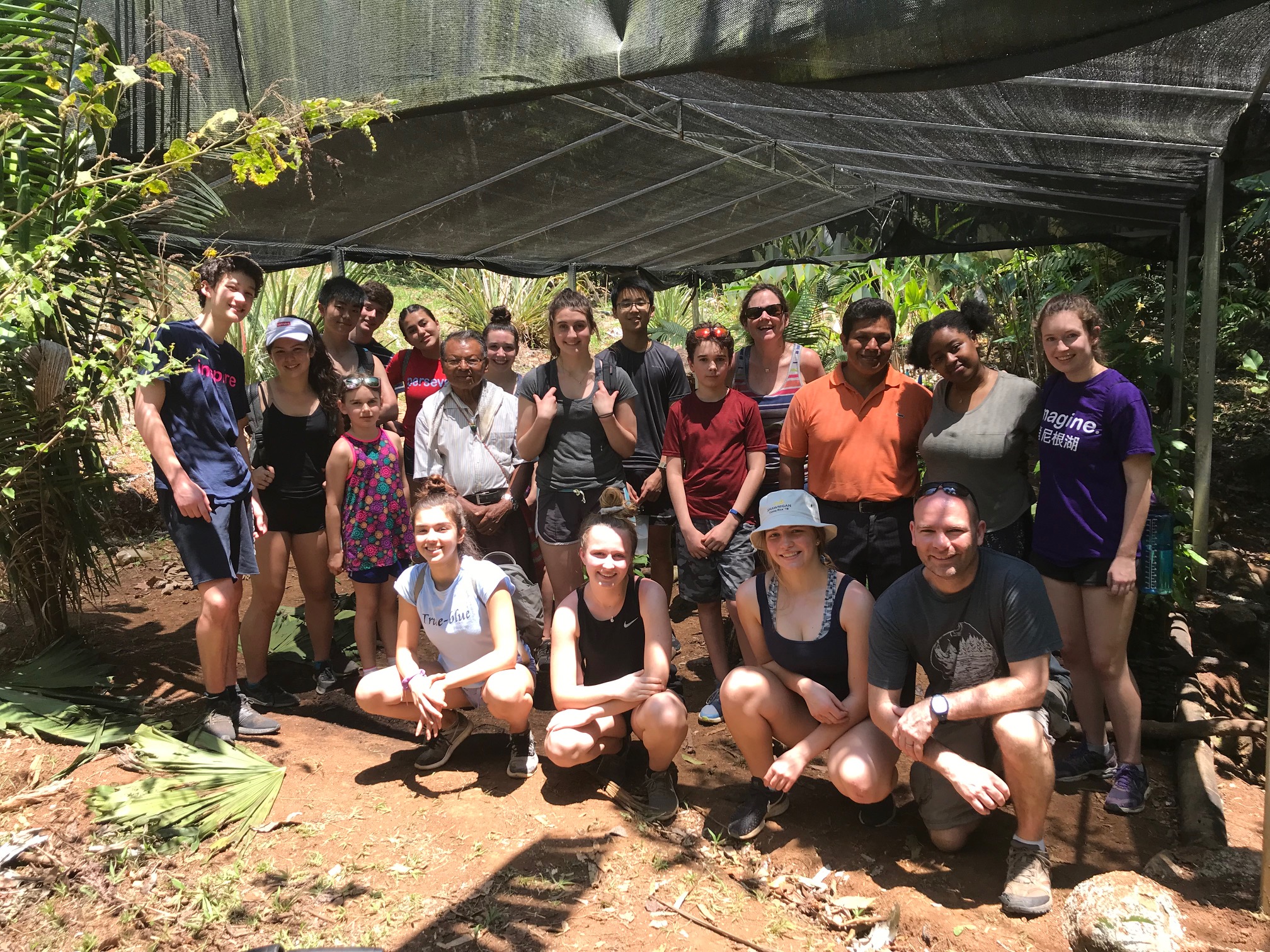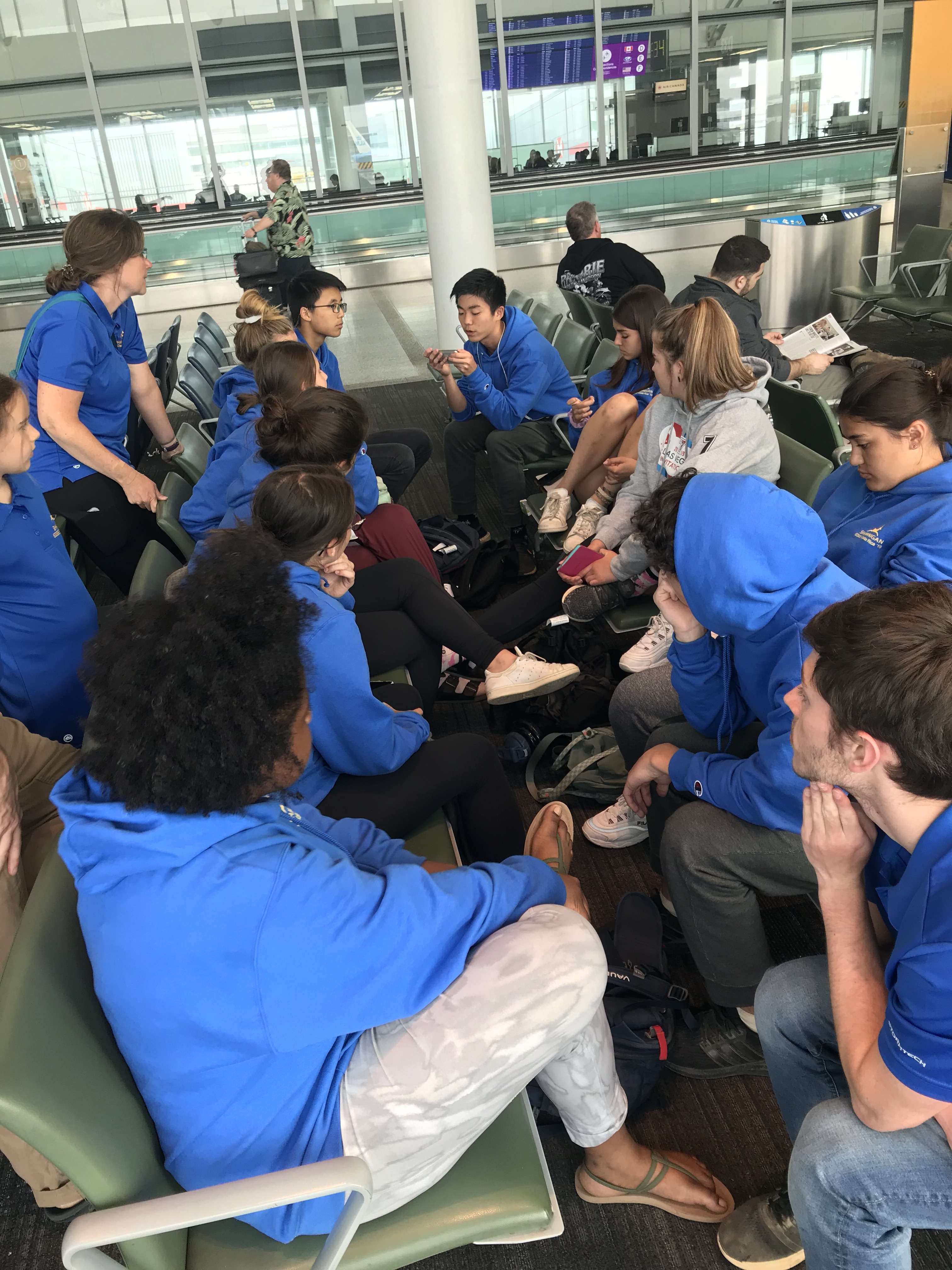
Sharing our reflections on the trip before coming home 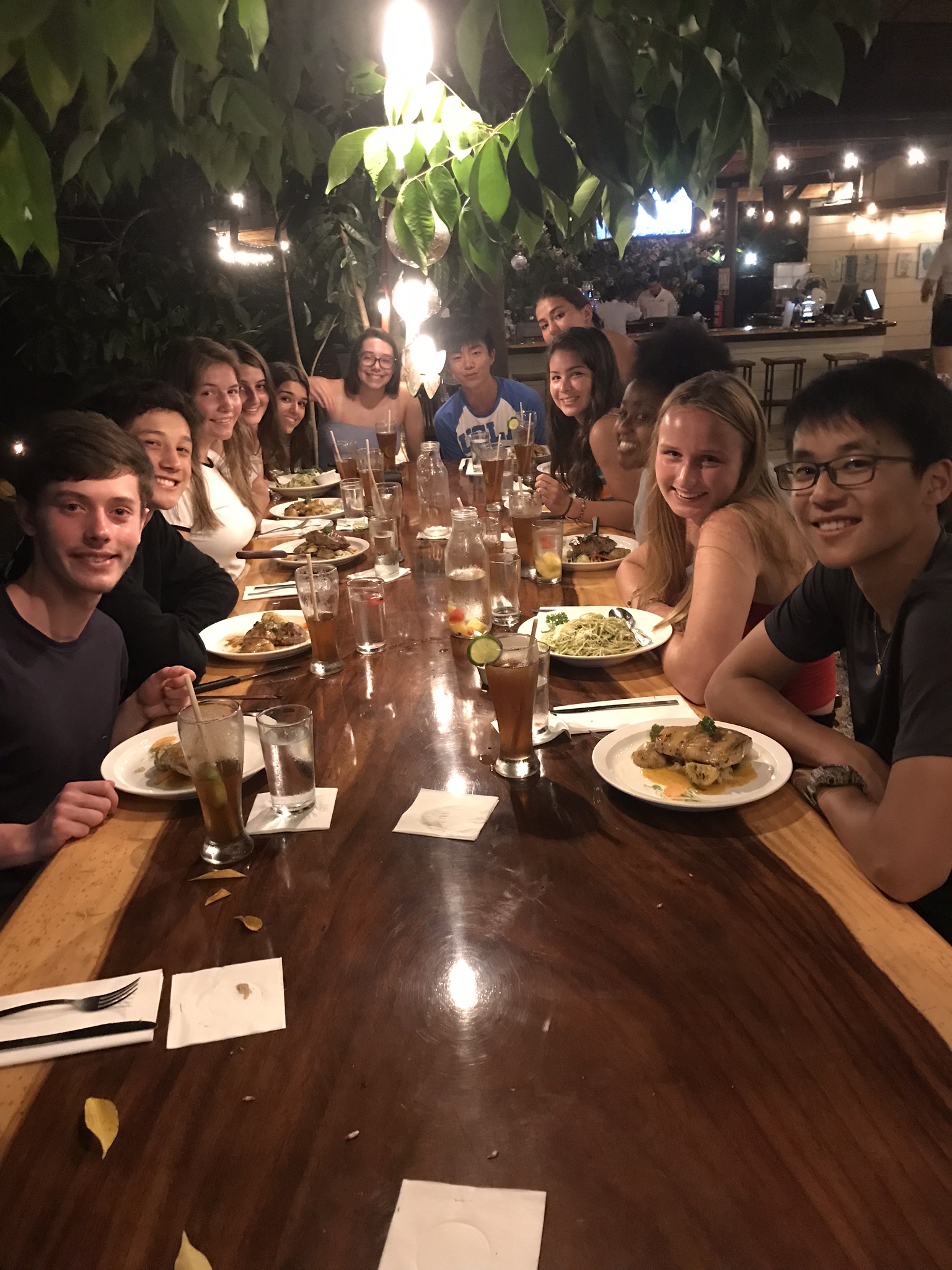
Our first real restaurant meal … also our last meal as just our team 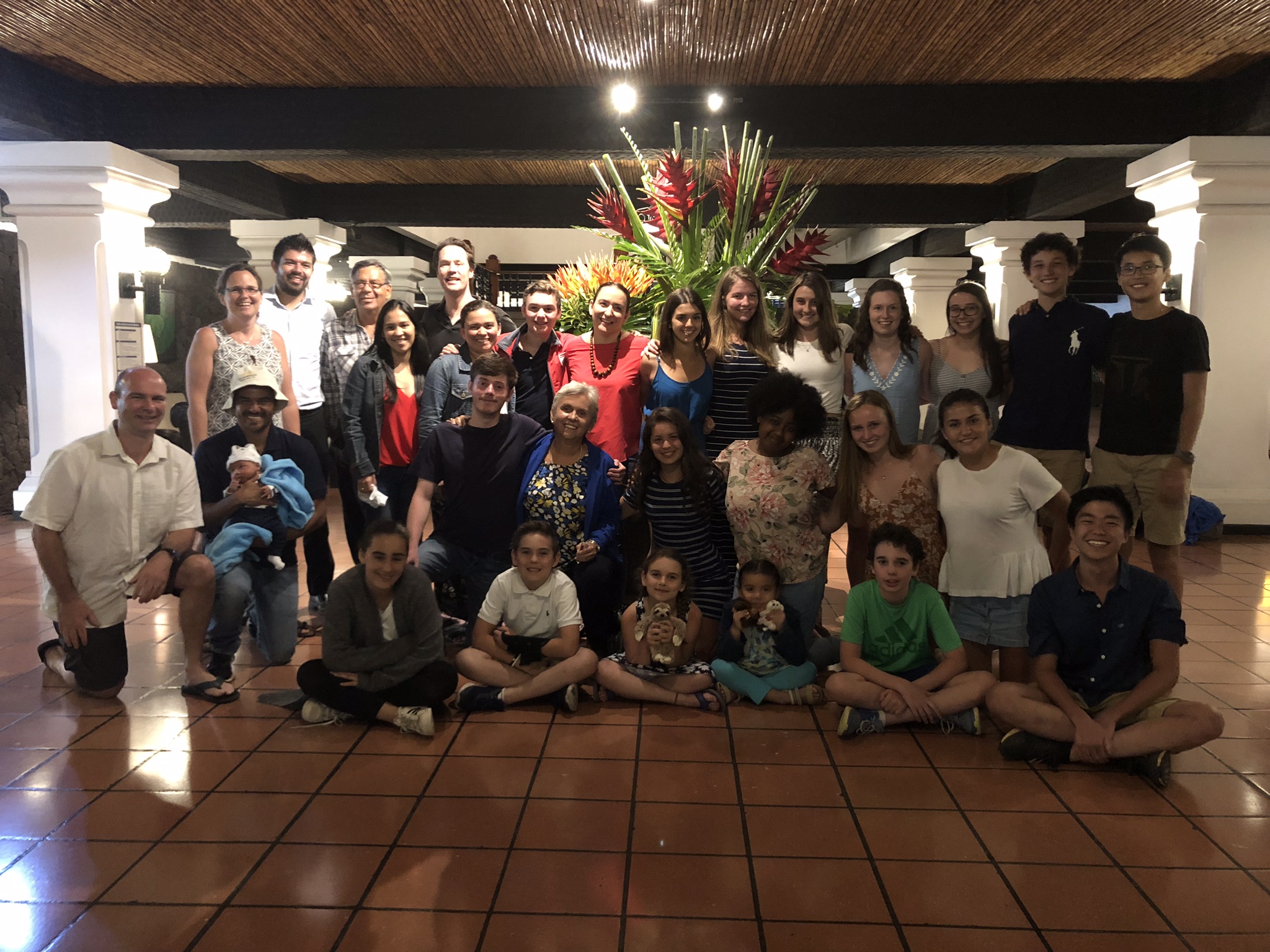
Our last night in Costa Rica
Aaron
Coming into this trip, I didn’t know what to expect. Two of my brothers have been on EDGE trips and I had heard stories from them, but this was a different place. I would like to think that this trip has helped me grow as a person. This trip in many ways has pushed me out of my comfort zone. Zip lining through the trees and free falling on Tarzan swings scared me a lot but I’m really happy that I did it. Seeing scorpions and dancing is also not something that I would usually do.
When first arriving at Bribripa, visiting our first Indigenous community, I discovered a new way of living. No phones, no social media, just people living life to their fullest. Everybody was happy and were so glad that we were there. Then we went to Longo Mai to start the service part of our trip. Longo Mai was a place full of refugees — mostly El Salvadorians trying to escape violence. Music was a big part of how they lived their lives. They didn’t have much, but all of them were happy. The next stop was AsoProLA, one of the poorest communities in Costa Rica. Seeing the mom cry as we helped her to fix her house really made me realize how much of an impact we are having on her and her family.
Living without my phone, sleeping with scorpions, and having cold showers every day really helped me grow as a person. Seeing these three communities has helped me realize that we should all appreciate what we have already. Coming on this trip, I have gained a new perspective and will hopefully apply it to my life. I also learnt that heatstroke sucks and I need to always bring enough water with me on hikes.
I’m so grateful to my parents for giving me so many opportunities and sending me to Shawnigan. I’m also grateful for everything that I have and hopefully I will apply the Costa Rican way of living to my life . . . Pura Vida.
Mikayla
Grade 8 was the first time I heard about EDGE. I wasn’t entirely sure what it was or what it entailed — all I knew was that I wanted to be a part of it. Costa Rica was not somewhere I imagined I would go. Not that I didn’t want to, but I never thought it would be in the cards for me. So to be able to come to Costa Rica while also being on an EDGE trip was surreal.
On this trip, I learned so much about an incredible culture I previously knew nothing about. I was constantly surprised by their ways of life. To be completely immersed in a place where everything is so different in comparison to what I’ve ever grown up with was a shock . . . but a good shock.
This EDGE trip has made me stretch beyond limits I didn’t know were possible. The six-hour hike was the first big challenge I faced when we were in Costa Rica. I never thought in a million years I would be able to do it, let alone enjoy it. On this excursion, many people realized that hiking wasn’t for them, but for me, I had the realization that hiking is a passion of mine that I have let go of in recent years. It is something that I want to get back into because it genuinely makes me so happy and helps give me a different kind of appreciation for the earth. Even though my fitness was in no way prepared for something like that, I would not have changed anything about that day.
The next time my limits were tested was when we were in AsoProLA. I became ill and the combination of heat and physical labour did not help my case. I found it very challenging to be myself because I was drained and had a constant mental block. One night I felt so awful that I started to cry in front of Ms. Cholack and Lozzy. Crying is something I hate doing — especially in front of others. I was taken to my room to lie down to try and rest my exhausted, sick body. I tried to sleep, but I couldn’t. I called my mom, who helped me refocus and push through the next couple of days. She reminded me why I was in Costa Rica: that I was there to help people who are less fortunate than myself and that everything we were doing is changing someone’s life. The next couple of days were still hard, but I knew nothing was going to stop me from doing as much as I possibly could because I was making and did make a difference.
This trip has helped me grow in ways that no other trip ever will. It has made me realize that giving to others, no matter what it is, the smallest or biggest things, is worth something so much more than what money can buy. While giving to others will be one of my main focuses for those around me, I’ve also realized that I should never give up on myself. Even if you feel like you can’t push through something, or if you’re in a slump, there’s a way to get through it and you will be a better person as a result. I truly believe that I will live the rest of my life differently because of this trip. I will try my best to never take anything for granted, while also praising anyone who has ever supported me in any way, because I am truly lucky for everything I have. I now can more easily identify my selfish tendencies, and I want to try to live my life as a better person who is not obsessed with material objects, but with the well-being of others.
When I was in Grade 8 I heard about EDGE, but I had no idea the impact it would have on my life and ultimately how it would change the course of my life. To finish, I want to give a huge thank you to the Shawnigan Parents Association for giving me the financial support that allowed me to be a part of something so life-changing, and to Ms.Cholack and Lozzy for choosing me as a new member of their family for 17 days and putting up with the ups and downs of 12 crazy teenagers. Finally, I want to thank my mom for providing me with the opportunity to go to Shawnigan, and on top of it, experience things that she’s never had the chance to. I will give back someday.
Taiki
I always knew that I was grateful — I never took things for granted and I felt blessed with the things I was given. When I first arrived in Costa Rica, I didn’t know what to expect. I knew it was a service trip, but I was more excited for the beaches and the relaxation. When we first arrived, I had to face the cold shower. I know it is a small thing, but in the back of my mind, I always took that for granted. When we arrived at the villages and the communities, I was surprised that even without the same living standards as I had at home, everyone lived completely fine and happily. Although some help was needed, all of the communities were grateful for everything they had.
At home, when bugs fly indoors, my family usually freaks out. But the family I homestayed with in Longo Mai were completely fine with the bugs and were entertained by my overreaction. Even the one-year-old baby, Derek, picked up bugs and played with them. Since they all grew up this way, they are used to it. I started to get used to it, but bugs flying in the shower bugged me.
I realized that the distance we drive at home is a walkable distance in some cases. The six-hour-hike we did showed us the crazy uphill and downhill road that farmers have to walk to get foods such as bananas — things that only cost us a few bucks in a grocery store. All of these little things gave me a whole new perspective on life, and gave me even more gratitude for everything that we rely on. A roof over a head is an obvious one, and living with a hard floor in the house was a first for me. When we were in AsoProLA and we put down cement floor in the house, the family’s appreciation really made my day, and made me realize that the physical demonstration to giving back is very important.
After the trip, I will be thankful for every warm shower I get, a roof over my head with no bugs, and everything we lacked on our service trip.
Moyra
This EDGE trip has been an experience of a lifetime, and I leave today feeling extremely grateful for this opportunity and memories that will remain with me forever. This trip has helped me grow as a person in numerous ways: it has expanded my cultural and environmental knowledge, engaged me with new people, pushed me through numerous comfort levels, given me new perspectives, strengthened my work ethic, and improved and altered my overall outlook on important things in life.
I am thankful to be taking back new friendships, connections, feelings and impactful moments from this two-week journey, and I am excited to be able to share this with family and friends back home so that they can have the opportunity to understand how greatly impactful this trip has been for me, the team, and the rest of people that we were able to meet and spend time with along the way. This trip has made me realize how lucky I am and how thankful I am for my family and friends that I have and have made. The impact it’s made on me will stay with me for the rest of my life. I’m hoping I will be able to pass on and share this opportunity and impact with others and be able to keep the strength its given me in order to do even greater things.
Ella
It’s honestly difficult to find the words to express how grateful I am for the ways this trip has impacted me. Prior to departing for Costa Rica, I had been struggling a lot internally. Being new in grade 11, and struggling with constant anxiety over being “enough” — something I have struggled with my whole life — had left me questioning why I ever left behind my comfort zone in Victoria, where I had friends, family, and freedom to disengage whenever anything became too much. There were many days when going home — which is literally one hour away — seemed shinier than slogging out more days at Shawnigan.
However, the idea of EDGE and making an impact on someone else’s life gave me hope and something to look forward to. When I applied to this trip — full disclosure that I did not take it as seriously as I should have — it was a last-minute decision that consisted of me filling out my application the day it was due. With the experience now sadly behind me, I can say I would have done anything to have been selected as a part of this team.
I was nervous coming into this trip, as I was not super close with any of my teammates before the trip. Often, when I am thrown into a group of new people, I am super bubbly on the surface, but on the inside, I am ridden with anxiety and self-consciousness, analyzing my sentences multiple times before I speak. I was fearful this trip would go the same way. However, I am relieved to say that within the first 24 hours spent in Bribripa I felt relaxed, confident, and more myself than I have in a very long time. This can mostly be attributed to the people on this team, and I am so grateful for that.
At the beginning, I was skeptical of the selections and unsure how the dynamics would work, but I honestly can’t imagine anyone else being added to or removed from this team because everyone’s personality contributed to make us the team that we are and that I feel so lucky to be a part of. Even though it’s inevitable we will not be as close or spend as much time together, I hope we don’t forget the bonds we made or the inside jokes and the connection is still there.
I shared with Lozzie and Ms. Cholack that the work we did in AsoProLA I found so meaningful, obviously because through the physical work we did, we were able to transform the family’s home and consequentially make a monumental impact on their lives. However, I also felt that I could connect with the family on a personal level because the situation between the mother and father mirrored my family life at home. To imagine my own situation on a tremendously more tragic scale in extreme poverty inspired me to work harder and put in all the effort I could while working because I knew this family deserved way more than they had.
Returning from EDGE, I hope to bring newfound confidence and a reinvigorated sense of gratitude for all that I am blessed with. The poverty we witnessed in AsoProLA and Longo Mai was something I had never experienced — besides through a television screen — and gave me a new perspective.
I really hope to keep the bonds I have made and honestly clear my life of anything fake that doesn’t bring me genuine happiness. Through my experience in Costa Rica and meeting people like Manuel, Pedro, and Esteban and his family who radiated such generosity and passion for life, I have realized how blessed I am compared to those around the world. It would be selfish to waste time living in the 1% of the 1% worrying about things that don’t actually matter. Days during this trip working and laughing have honestly been some of the happiest and most life-changing days of my life. I hope upon returning to Shawnigan that I don’t lose this sense of freedom, gratitude, and genuine happiness. Lozzie and Mrs. Cholack: I want to thank you so much for choosing me to be a part of this team. It has genuinely been a life-changing 17 days for me and I am so sad it’s over.

